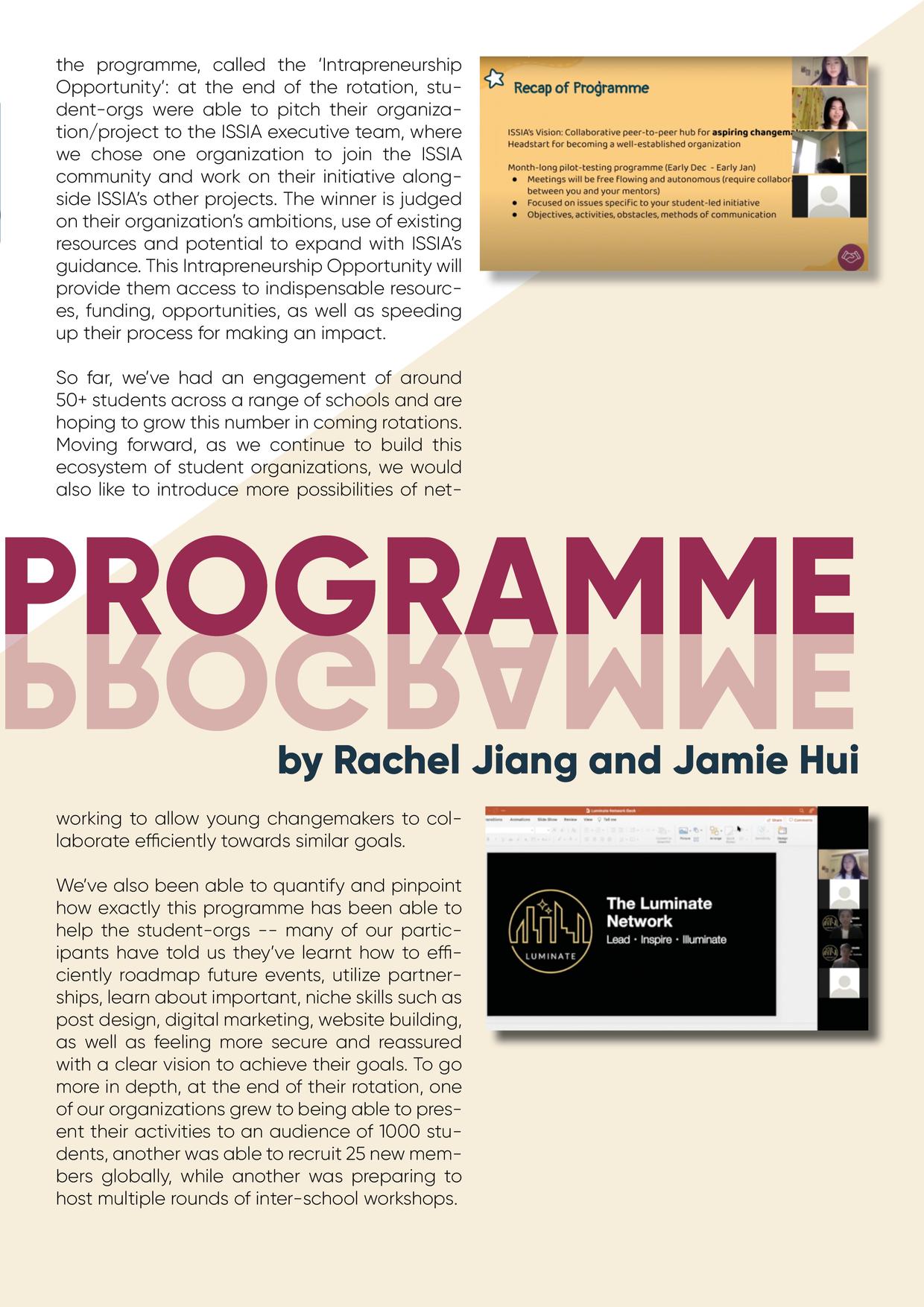




Reese Wong (Gap year) - Editor-in-Chief
Alpha Ngai (CIS) - Managing Editor
Angela Chan (OIC, UK) - Coordinating Editor
Katie Tam (YWGS) - Creative Director
Reika Oh (HIS)
Zia Cheung (HIS)
Megan Siu (HIS)
Kyle MacDonald (HIS)
Marcus Leung (HKU)
Shawn Chan (IS)
Airi Tachino (IS)
Luca Picazo (ISF)
Sophia Lin (ISF)
Megan Leung (RCHK)
Abhay Venkitaraman (Gap year)
Bernard Shiu (DBS)
Christine Chiou (KGV)
Clarinde Sanft (HIS)
Durva Kamdar (School of the Arts, Singapore)
Jerry Luo (IS)
Kayla Chan (SON, Macau)
Vanessa Yip (Hockerill Anglo-European College, UK)
Eric Lai (HIS)
Natalie Tse (HIS)
Valerie Ho (HIS)
Tiffany Cheung (HIS)
Agnes Chan (HIS)
Jerry Luo (Island)
Alexander Bray (Island)
Bernice Lau (Sherborne Girls’ School, UK)
Charlotte Wong (SPCS)
Kayla Chan (SON, Macau)
Felix Fan (HIS)
Insha Pervez (Mody School, India)
Bernard Shiu (DBS)
Abhay Venkitaraman (Gap year)
Joanne Yau (KGV)
Yoyo Pang (CDNIS)
Clarinde Sanft (HIS)
Nicole Luk (ISF)
Rachel Jiang (CIS)
Jamie Hui (KGV)
Tiffany Fu (DGS)
Ethan Choi (VSA)
Tisya Gupta (SIS)
Thomas Liu (CUHK)
Callum Fitzhenry (HIS)
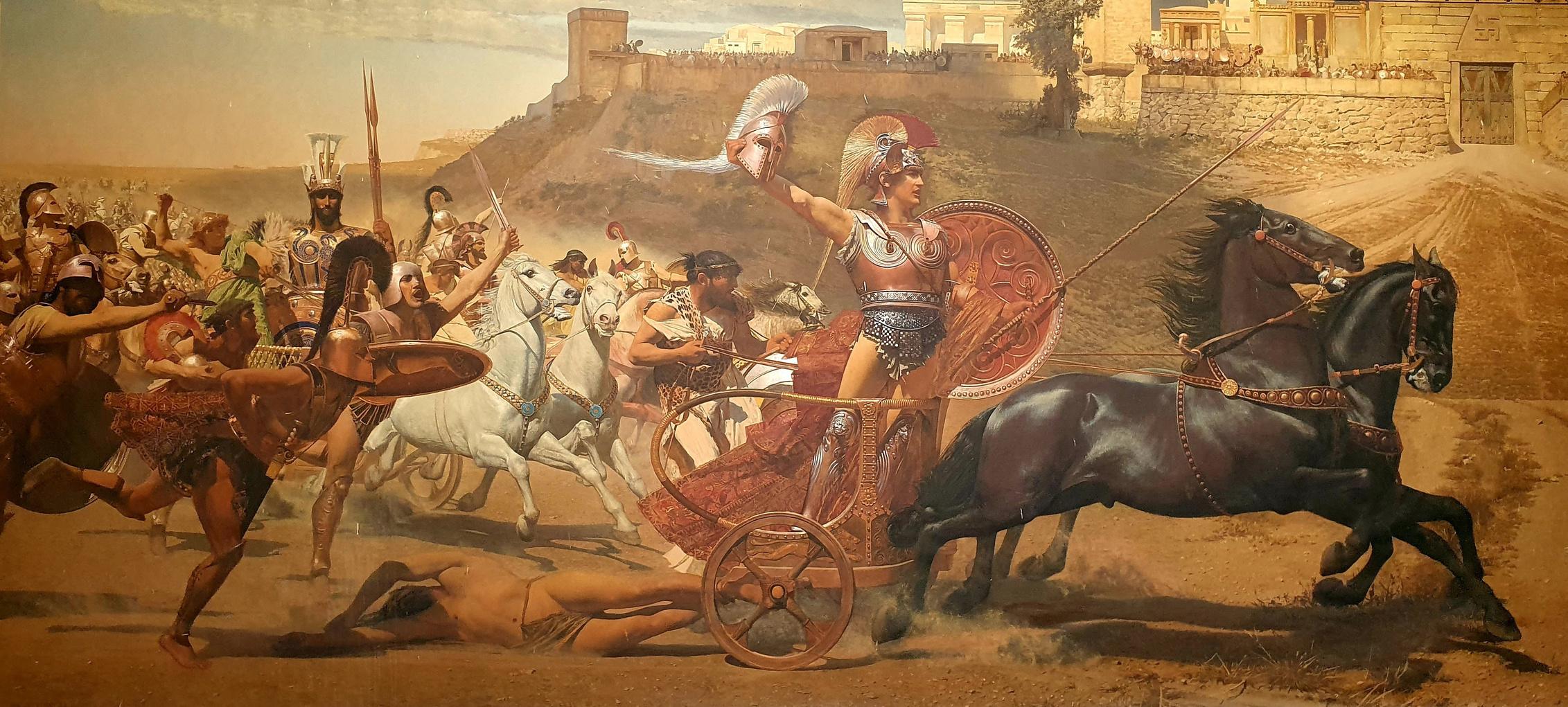

It’s great that nowadays, we have a lot more representation in the media like TSoA because historically, historians were notorious for the erasure of the LGBTQ+ community in historical records
The Song of Achilles (TsoA), penned by award-winning author Madeline Miller, has quickly risen to become one of my favourite reads ever thanks to its expressive writing, heartwrenching romance, and everything else about it It is a retelling of one of ancient Greece’s most venerated heroes, Achilles, from the perspective of his lover Patroclus
As a mythology fan who loves a good romance that leaves you feeling more single than ever, this book was everything I asked for and so much more From the carefully crafted characters to the vivid imagery, putting down this book becomes a Sisyphean task once you’ve started Patroclus and Achilles’ relationship is often glossed over as friendship in popular media, but varying evidence suggesting otherwise shows how close the two of them were. Aside from the beautiful romance, Madeline Miller’s masterful characterisation will leave you sobbing and severely attached to both of the main characters by the end. The dynamic between Achilles and Patroclus is incredibly touching, and their individual characters are some of the best I’ve seen in any form of media I cannot emphasise enough how hard I cried at the end
We’ve all heard about the indecent misadventures of the Greek Gods with many, many women, but no one ever talks about the nearly as numerous men they have courted Some of the more known examples include Hyacinth, who attracted the adoration of both Apollo and Zephyrus, the god of the west wind and Ampelus, a satyr and lover of Dionysus, whose corpse turned into a grapevine and would later earn Dionysus one of his most well-known titles, the God of Wine However, perhaps one of the most well-known is the story of Ganymede, a youth whose beauty captivated Zeus so much that he abducted him to be his immortal cupbearer on Olympus and who later also became a symbol of young, beautiful men who attracted homosexual love and desire Interestingly, Ganymede is one of the only lovers of Zeus who received immortality.
I’m sure very few people know about these relationships unless you’re very into Greek mythology, as secondary sources often choose to depict them as friends instead of lovers I, for one, only learnt that Ampelus was more than friends with Dionysus whilst doing research for this article. Not only this, Apollo was considered to be a patron of same-sex love, alongside Hermes, Heracles and Eros.
On the topic of Sappho, I’m sure quite a few of you are familiar with the term “Sappho and her friend” This refers to how historians were often hesitant to consider Sappho’s poems love poems, despite her openly expressing her admiration for women in them.
Illustration by Reika Oh Eric Lai byInterestingly, they had no problem with similar “love” poems but between different sexes Additionally, the poems of Sappho identify Aphrodite as a patron of lesbians Along with Achilles and Patrocles, Sappho makes up two of the most famous examples of the erasure of the LGBTQ+ community

Another prominent case of this type of censorship occurs in Chinese history. For the most part, homosexuality was never frowned upon in ancient China; more viewed as a kink or interest instead of a lifestyle. Many Chinese emperors also had male lovers However, during the self-strengthening movement, most of this was censored, and the discrimination and erasure of the LGBTQ+ community also began As someone with a Chinese background, I never even knew about the existence of homosexuality until coming into contact with social media and being exposed to the LGBTQ+ community This shows just how rampant the erasure of the LGBTQ+ community is in Chinese culture.
Even to this day, our society suffers intensely from this issue.
In 2014, the biopic “The Imitation Game” was criticised for not fully exploring Alan Turing’s sexuality, a significant factor in his life and one of the causes of his untimely death and instead using it as a plot device to portray him as a tragic hero instead of being an actual part of his life The Hasanlu lovers were a pair of skeletons found in the Solduz Valley in Iran The moment that they were both discovered to be male, archaeologists were quick to backtrack on calling them lovers, instead opting to call them friends or even strangers
However, the most recent example of this is the so-called ‘don’t say gay’ bill, which was passed in Florida in March 2022. This law prohibited the discussion of gender identity and sexual orientation in classrooms and is a prime example of the widespread erasure and prejudice against the LGBTQ+ community
Now, how does this link to the book? The song of Achilles is the first of many books released in recent years that contains an excellent representation of the LGBTQ+ community Additionally, this story in particular is very directly involved in the issue of erasure due to the relationship between Achilles and Patrocles being a huge example of erasure in history. This is significant because through these stories, we are able to not only educate and spread information about the LGBTQ+ community but also the history of our community and how homosexuality is not, in fact, unnatural
One of the tactics employed to ostracise the LGBTQ+ community is the argument that it is “unnatural”. However, homosexual behaviour is observed in over 450 species worldwide and has long been present and not even frowned upon in many ancient civilisations. Sharing this information not only helps to destigmatise homosexuality but also spreads awareness about the issue of erasure and helps to combat it
We, as netizens, can also help in this fight against erasure by spreading awareness and educating others about erasure and the stigma around the LGBTQ+ community We as a society are seeing an increase in the number of people who are comfortable exploring their gender identity and sexual orientation. We should aid in the furthering of this until we finally achieve a society in which everyone can feel comfortable and express themselves how they wish without being shunned or looked down upon
Since the birth of civilisation, almost every ancient civilisation has used the concept of prison as a way to detain and undermine the autonomy of the incarcerated, often as a transition before sentencing them to death or slavery However, as time went on and as civilisation developed, prisons started to evolve into facilities that focused on correctionrehabilitation and reform Today, imprisonment is often regarded as the final stage of the criminal justice process; this process includes the undertaking of the offence, the investigation, the arrest, the detention, the trial and the sentence
The United States and Norway have two very different approaches to prison

Criminologist Bob Cameron says that prisons should have five goals in general: retribution, incapacitation, deterrence, restoration and rehabilitation. In his words, “Americans want their prisoners punished first and rehabilitated second”. This can be seen through how American prisons emphasise the custodial model of incarceration, emphasising security, discipline and order. Conversely, Are Hoidel, Halden Prison’s (a Norwegian prison) director says that “every inmate in Norwegian prison is going back to society. Do you want people who are angry - or people who are rehabilitated?” In Norway, the prison system focuses on the rehabilitation and reintegration model of incarceration. Norwegian prisons aim to turn offenders into good neighbours by having shorter sentences and prioritising mental health and connection with family and society.


Design and architecture give you a message telling you what to expect, how to act and how to feel Prisons are the same There are four main prison designs The courtyard, telephone pole and radial design of most prisons in the United States today While these three layouts are good for moving prisoners around efficiently, they restrict prisoners to the same corridors every day and tight and overcrowded quarters can unintentionally create tension and conflict These layouts also have windows that look out onto the prison itself, giving inmates the illusion that they are in a diving bell, disconnected from time and space
On the other hand, the campus design is often the design of humane prisons In the campus design, the layout of facilities in separate buildings means that most inmates will have to commute to different facilities daily, mimicking life in the outside world and providing easier access to outdoor physical activities A popular example of this is Halden Prison in Norway Halden Prison was designed to minimise the inmate’s sense of incarceration, ease psychological stress and place inmates in harmony with surrounding nature The prison is set amidst blueberry woods, made up of two-storey accommodation blocks and wooden buildings giving the prison the atmosphere of a university campus rather than a maximum-security prison The prison is surrounded by a concrete wall with no barbed wire or security fence There are movement sensors on each side of the wall and security cameras; however, no one has ever tried to escape
Norway also offers open prisons; these are for less hardened criminals and act as a stepping stone for serious offenders between maximum security prisons and society Open prisons have minimal security, more freedom and responsibilities In short, these prisons are similar to dormitories; prisoners live in the housing provided but are allowed to connect with the outside world. This increased freedom and responsibility allows for better integration into society.
Today, most prisons offer prisoners programmes to make the most out of their time in prison The programmes offered vary between prisons and countries, but these programmes are usually educational In Norway, all prisons offer education, mental health and job training programmes They believe that these programmes help prisoners rehabilitate and prepare them for the outside world In 2014, it was found that 38% and 33% of prisoners in open and closed prisons, respectively, participated in some type of educational or training programme.
The most common programmes are for high school education and work-related training, however, inmates can also take miscellaneous courses In Halden prison, inmates are taught carpentry, mechanics, printing, engineering, cooking and many more If inmates aren’t enrolled in an educational programme, they must work within the prison Despite the large selection of programmes and activities, some inmates may choose to not comply with the system Those who choose to not comply are locked in their cells until the inmates themselves decide whether they would like to join in on the reform route
In contrast, most state prisons in the United States aim to provide GED test preparation [standard US high school test], adult basic education and vocational skills training However, a RAND report (2014) found that funding for such initiatives is lacking The Government Accountability Office reports that the increased number of inmates has led to long waiting lists which increases inmate indolence and refrains from the potential rehabilitative benefits from such programmes The United States also provides labour for inmates, however, this is not often voluntary, resulting in forced prison labour
 Illustration by Zia Cheung
Illustration by Zia Cheung
Incarcerated people in the United States are unprotected from forced labour as American labour laws such as the Fair Labour Standards Act exclude those incarcerated by classifying their working relationship as penal, not economic States have used prison labour as an opportunity for major corporations to be complicit in using free, cheap, or exploitative prison labour in what is now known as the prison-industrial system This forced labour puts a strain on the rights of inmates, using them as a cheap way to earn more profits for the company and the prison instead of drawing a focus on programmes and initiatives to help inmates
Besides education, health care services are also a basic human right regardless of one’s criminal status By law, all prisons in Norway have the same rights to health care services as the rest of the population 18% of inmates participate in a drugrelated treatment programme while in prison In the United States, health care services are also provided to the inmates, but the problem of prison overcrowding and limited funding has led to long waiting lists for drug treatment programmes
The overcrowding problem in the United States also takes a toll on prison conditions Federal prisons are found to be 39% over capacity, and over half of the states are at or above their operational capacity as of 2016 This means that inmates are often double or triple bunked in cells, and there is a high inmate-to-staff ratio, making it difficult to ensure the personal safety of prisoners
Although the problem of overcrowding does not affect Norway, Norwegian prisons have a strict policy of one prisoner per cell In Halden prison, each inmate has their own cell; this comes with an en suite toilet and a shower room, a fridge, a desk, a flat TV screen and forest views This goes with the ‘principle of normality’ popularised in Norway
The idea is, that if you treat people like animals, you get animals, and if you treat even the most hardened criminals with dignity and respect, you might get a decent, law-abiding individual The added communal kitchen expects inmates to cook for themselves while cleaning after themselves and attending work on a daily basis This daily routine makes the inmates feel comfortable; establishing these routines lowers stress levels, anxiety and even clinical depression
The amount of time an inmate spends in prison is very different in the United States and Norway In Norway, the longest prison sentence is 21 years long with the average time spent in prison being six months as almost 90% of prison sentences last half a year This is a lot shorter than the average prison sentence in the United States where the average is only 2 9 years, the United States also have prison sentences going up to life imprisonment or even the death penalty Shorter prison sentences were found to be better as the inmate’s human capital has less time to deteriorate, making it easier for the inmate to reintegrate into society
Whilst longer prison sentences come with their own benefits, such as ‘ageing’ out the crime activity era to reduce crime with longer punishments, longer prison sentences are the reason for prison overcapacity Longer sentence lengths in turn divert the prison budget away from rehabilitation programmes and medical treatment to focus on maintaining security, discipline and order It also diverts the public safety resources toward building prisons instead of spending it on policing, drug treatment or education for children While shorter sentences retribute the prisoner and make it easier for inmates to return to society, making it more beneficial
While offenders in Norway may lose their jobs when they go to prison, they are neither asked nor required to disclose their previous criminal record to most job applicants. This stands with their philosophy that ex-inmates are just like every other citizen. This is very different from that of most States in the United States, where employers might not hire those with a previous criminal record or may discriminate against those with a previous criminal record, especially those who are in minority outgroups.
In Norway, there is an emphasis on helping offenders reintegrate into society after their release Released offenders all have access to active labour market programmes purposely established to aid ex-convicts to find a job and help them with a variety of social support services such as housing support, social assistance and disability insurance. In the United States, the safety net is less extensive. Even with a safety net, ex-convicts usually find it hard to access services. An example of this is how offenders are not eligible for unemployment insurance upon release and are frequently denied access to public housing due to their records and many different assistance programmes. This lack of support has led to increased recidivism rates, driven by an increase in financially motivated crimes. They are also not allowed to vote.
In the United States, almost all released offenders have to go through probation Probation is a period of community supervision after someone is released from prison, probation on average lasts for 19 months, and all ex-convicts must comply with probation requirements These requirements include: reporting in person to probation or parole officers, participating in intense supervision programmes, not leaving the designated city or state without supervision, finding and maintaining regular employment, not using drugs or alcohol, obeying all state and local laws and many more There are also other possible requirements depending on their probation, court order or their probation officer; these include: conforming to electronic monitoring and special curfews, participating in transitional housing programmes, paying restitution to victims in a timely manner, attending anger management courses, staying away from the victim(s) of their crime(s) and more
While probation is created to monitor ex-convicts and help them reintegrate into society, it often does more harm than good. In most states, ex-convicts are charged a monthly probation fee; this puts a drain on their incomes and makes it harder for them to reintegrate The Prison Policy Initiative’s analysis in 2016 found that those on probation typically have less income than those not on probation
In all of the United States, 66% of people on probation make less than USD$20,000 per year, and nearly 38% of people on probation make less than USD$10,000 per year, putting them well below the poverty line.
Monthly probation fees are often one of several fees ex-convicts have to pay regularly. As part of the conditions of their probation, an individual might be subjected to pay court costs, one-time fees, monthly supervision fees, electronic monitoring costs, or any combination of these charges. Failure to pay these results in either an extended probation period or incarceration. These charges do not account for the individual’s daily expenses, like housing, food, electricity, transportation, taxes, and others. As an ex-convict, it is very hard to find a job with a criminal record; most jobs that employ ex-convicts have very little income, which may not be enough to support all the charges they face.
Ex-convicts also face the stereotypes imposed on them by society. This is not much of a problem in Norway as the general public sees ex-convicts as equals; instead of focusing on their past, Norwegians tend to focus on the person they are in the present. Contrarily, in the United States, mainstream media often showcase prisoners and ex-convicts as dangerous and violent men with a darker complexity. This has ultimately led to unnecessary policies and incidents where people call the police based on merely suspicion or incidents where the police use more force and brutality than necessary.
The recidivism rate in the two countries simply shows which system is better Norway has a recidivism rate of 20% one of the lowest in the world as of 2019, inversely, the United States has a recidivism rate of 76 6% (only in the first 5 years within release) one of the highest in the world Norwegian ex-convicts are less likely to commit a crime again due to the support they receive while American ex-convicts are more likely to re-offend due to the tough reintegration
Judging from the substantial difference between prison facilities and programmes in the two countries, there is no doubt that there is a big gap in the cost spent on prisoners. Norway spends USD$118,000 per inmate per year which is nearly four times the average of USD$31,000 for the United States. However, this average masks substantial heterogeneity in wage and labour cost differences. For example, the state of New York spends USD$66,000 per inmate, Iowa spends USD$33,000 per inmate, Alabama spends USD$17,000 per inmate and New York City alone spends USD$167,000 per inmate.
Prioritising rehabilitation in incarceration, however, is more affordable than it initially appears and could result in cost savings if prison sentences are shortened Shorter prison sentences would result in significant cost savings even if the crime committed is twice as high This increase in cost savings would free up significant government revenue to spend on job training, education, drug treatment programmes, improving prison conditions and post-release support Shorter sentences would also lower incarceration rates and relieve overcrowding in federal and state prisons without building new prisons The Norwegian prison system also demonstrates the added benefits of implementing a rehabilitative prison system To the extent that prison increases post-release employment, this change will concomitantly reduce expenditures on safety net programmes and possibly increase tax revenue While this is difficult in controlling crime rates, reduced recidivism has a lot of potential benefits to society
Fundamentally, the Norwegian prison system is undoubtedly superior to the United States prison system in terms of prison design, prison conditions, prison features, sentence length and postrelease support. This ‘principle of normality’ sets an example to other countries as an alternative route to prison; prison should not be focused on the punishment of an individual’s past crimes instead, it should be focused on reforming them, making them a better version of themselves, the only punishment inmates should face is the loss of freedom, not their daily life The United States should prioritise the rehabilitation and mental health of inmates rather than the profits they earn from stocks and penal labour The Norwegian view is right; prisoners are just citizens temporarily removed from society Prisoners (except for those on life sentences) will eventually return to society and so the pertinent question remains: Do we want to live in a society where people are angry or thrive in a society where criminals are rehabilitated and reintegrated?


Although, in the modern-day era, gender equality has been shown in a new light with recent surges in movements to abolish our society’s patriarchy and figures standing up to protest for rights It has led to women being the heads of governments, laws protecting females, and more equality in sports. Yet it has also led the term 'feminist' to be regarded as synonymous with 'man-haters', for pay gaps to be enlarged and most pressingly, for the field of medicine to overlook female biology and anatomy

Regardless of whether they specialise in the medical field or not, many professionals continuously make assumptions based on the grounds that all genders should be treated the same The male and female anatomy is different This is an indisputable fact Therefore, medication and life-saving procedures and protection should not be the same for all genders -- rather, it should differ according to biological needs
Inequalities in paternity and maternity pay are one of the most concerning issues to date, affecting the welfare of not only women but men It has led to different viewpoints about this argument of whether both fathers and mothers should have the same amount of pay during leave and have the same leave duration The South China Morning Post has recently organised an interview with various students, ranging from 12-to 17 years old The majority of the students have said they support both fathers and mothers having the same pay and duration of leave- because the mother would be tired after birth, and taking care of the child and doing household chores would be tiring Filing for a paid maternity leave is practically impossible.
Hong Kong provides 14 weeks of paid maternity leave at best if they fit specific criteria. Many do not include this criterion and end up with unpaid maternity leave for around 10 weeks However, paternity leave is not even a realistic reality
During the 14 weeks, the father can only take 5 days off and must tell his employer days in advance. There is a drastic difference between the period of time fathers and mothers are allowed
Another area that is frequently overlooked is medication and dosages for different genders
One of the most prominent cases is the sleeping tablet Ambien. In 2013, it was discovered that the prescribed dosage differed for genders. This meant that while a man taking the prescribed amount of Ambien would wake up normally, a woman receiving twice the dosage would increase the risk of deaths in road accidents (primarily with women who had been overdosed) due to the drug's after-effects of drowsiness and confusion
There is also growing concern regarding how major companies test their protection features. Many have raised concerns about the usage of male dummies for car crash tests Not only is the average female height shorter than the average male height, but the posture and neck height of both males and females is also different It all affects how one would act in a car crash Airbags, seatbelts and the sizes of the dashboards are designed to accommodate male drivers. Without adequate car crash tests on female dummies, women would be 3 times more likely to be killed in car crashes than men G E N D E R I N
M E D I C I N E
CPR training is also practised on male dummies; people are more hesitant when performing CPR on women. Surveys have shown that people are afraid of being charged for sexual assault and are unaware of how to perform CPR on people with breasts, and only 39% of women suffering from cardiac arrest in public places were given CPR compared to that of 45% for men.
There is also a stigma surrounding females being less likely than men to have heart attacks Women can experience nausea, shortness of breath, back and jaw pain These are not well-known symptoms, and therefore because of the lack of public education, females are 50% more likely to die from a heart attack than males
Furthermore, menstrual products are a commonly discussed topic Period poverty is the lack of access to sanitary products due to financial constraints. It impacts a staggering number of 500 million people globally It contributes to humiliation in society from period-related accidents that can happen to girls and a loss in wages On average, a female will spend $19,000 USD on period-related products and spend a total of 6.25 years of her life bleeding. 36% of people surveyed missed one or more workdays a month due to a period poverty Not only that, there is a lack of education surrounding menopause. They have been deemed the reason for symptoms such as dizziness, joint pain, fatigue, sudden weight loss, or weight gain but have also been misdiagnosed as symptoms of other diseases countless times A survey of 5,000 women conducted by Newson Health Research and Education found that a third of women wait at least three years for their symptoms to be correctly diagnosed as menopause-related A further 18% visited their doctor six times before getting the help they needed. This shows an overall lack of understanding about menopause and the impact of this on women
The field of medicine should not discriminate Women and men. Men and women. We are of the same species, living in the same society. We cannot reach gender equality by being treated the same We deserve the same inherent rights but also equitable treatment according to our biological differences. Equity is a step in advancing equality. In order to reach a society in which everyone has access to the same rights and opportunities, we must first recognise biological differences between genders to vanquish gender inequality together.

It is the same cliche answer you get each time you ask an Asian parent what they want their children to be A doctor It is the same cliche thing you see in every school’s leavers’ destination document - a bolded percentage of students who got accepted into medical school The mere words ‘doctor’ and ‘medical school’ seemingly emulate a certain tinge of dominance
I come from a culture that birthed generations of overbearing parents who idolise doctors. They map out different paths for their children, but they all ultimately lead to medical school. Schools pride themselves on being a sausage factory that churns out medical students yearly. It’s as if the default setting to a successful life is to become a doctor, much like the stock photo of a mountain range as your mac background. People look up to doctors. Yet perhaps, society has overglorified this occupation, seeing as most doctors, including Dr Adam Kay, author of his biography ‘This is Going To Hurt, tell their children to look the other way and leave the stethoscope out of their future People often only speak of the prestige and the meaningfulness of the job Hence, just as overhyping a new tech-savvy gadget comes with a price, so does the over-glorification of doctors; doctors' heroisation is so full-fledged that it has paved the way for their continuous exploitation
There is a fine line between being selfless and being exploited, and the pandemic has only made the distinction in doctors progressively ambiguous.
It becomes too easy to avoid confronting the structural failures in the medical system when our society’s veneration for healthcare workers swells into a kind of hero worship. Rather than interrogate on a political and institutional level why the working conditions of doctors remain hazardous, our society glorifies the struggle through hero narratives and labels of selflessness. Thus, politicians latch on to that as an excuse for their oversight and indifference to the exploitation of doctors. Heroes are good, right? It's a word with positive connotations. Hence, why would we change the material conditions which have bestowed the label of ‘heroes’ on doctors, something good? Therefore, doctors continue to be paralysed by political systems In the United States, The Trump administration failed to respond to the pandemic, as seen by the president’s political decisions, which hinge on ego, ignorance, and denial The New York governor gutted billions from the state’s Medicaid budget In hospitals, nurses wear trash bags as personal protective equipment; resident physicians are given Yankees ponchos for protection; healthcare workers are denied testing and are asked to repeatedly reuse n95 masks Meanwhile, hospital CEOs and politicians are self-quarantining in their Florida vacation homes in classic plutocratic fashion: protected, safe, and distant
But that’s ok, right? Doctors are our heroes They can handle it You don’t assist Captain America in battle He’s a hero He can handle it, and so can our doctors

The pandemic policies, coupled with the constant invalidation of hardships owing to societal overglorification, give rise to doctors’ continued exploitation
We have constructed an unrealistic mould for doctors, expecting them to fit into it: Heroes don't complain; they’re altruistic
Hence, should doctors complain or speak up, they’re a glitch in the matrix, an aberration, a coward. Doctors then stay silent for fear of being suppressed and criticised, which is not for nought, seeing as there have already been too many times that their fears became a reality in the pandemic. Remember the Hospital Authority (HA) employees' alliance strike in Hong Kong in February 2020? Over 9000 healthcare workers participated because they wanted the government to impose stricter border regulations and more effective hospital regulations as the current situation was putting their lives at stake Yet, not only were none of their demands met, they were heavily criticised by both politicians and civilians for being cowards and for not taking their job seriously Not only that, the HA announced that they would cut down strikers’ wages by the number of days they went on strike and mandate evaluations on strikers to determine whether their contracts with the HA should be renewed This response was essentially a proposition in disguise to warn doctors against pulling a stunt like this and standing up for themselves ever again Sadly, this isn’t something that is only emerging because of the pandemic Kay’s impetus for writing his book was the contractual dispute between the health secretary and junior doctors in the National Health Service (NHS). The doctors wanted a raise, and rightfully so, seeing as the hourly rate of a first-year senior house officer was a mere 6 60 pounds, even less than what a Mcdonald's branch manager earns. Yet, they were portrayed and criticised as money-grabbing individuals who became doctors for financial reasons A similar situation happened in Hong Kong in the early 2000s when the government raised the salaries for all civil servants but not doctors in the public sector.
Exploitation extends to an emotional level Kay successfully delivered a baby after a few gruesome hours but failed to save the mother in his biography The father breaks into tears and violently screams, ‘You saved the wrong one! You saved the wrong girl!’ It is an incredibly morbid scene, and Kay is shaken up by it. Yet, he is only given 10 minutes to write up his notes and change into new scrubs before tending to other patients again Over the years, he has learnt to stop asking for breaks as his senior registrar simply shrugs it off and tells him to ‘ man up Hence, when he falls asleep in his car after work on Christmas day and goes back to work after 1 hour of sleep, he doesn’t complain Ultimately, that is his job, and it’s not like he has a choice anyway. Similarly, other doctors learn to suck it up and deal with it.
This Is Going To Hurt’ documents his struggles through diary entries They’re sarcastic and full of witty banter
A classic textbook case of using humour as a coping mechanism Other doctors perhaps smoke and drink, be it ironic Yet, if any of those were effective antidotes, then I would not be telling you that Kay eventually left his medical career. I would not be telling you that 400 doctors in the US kill themselves each year
The medical system runs on skeleton staff and relies on the charity of doctors staying beyond their contracted hours to get things done on all but the quietest shifts. It would be against everything doctors stand for and deviating from the public's expectations to not put their patients’ needs before their own It would be, in other words, knowingly compromising their safety. So doctors don’t They stay behind after every shift
Thus, when their pager beeps at 4 am, minutes after they finally collapse into bed after a 36-hour shift, they answer it and drop everything just to race back to the hospital to help a patient who has not peed in 9 hours when they have not peed in 11 Thus, when they get called back to a hospital to check up on a patient, they swap out their tuxedo for a white coat and reschedule their wedding Thus, when their registrar has to perform emergency surgery, they leave minutes before their own daughter’s surgery to assist in the surgery of someone else’s daughter.
In this sense, doctors are not heroes as they are desperate and bound, trapped in disempowering working conditions with few alternatives because they have sacrificed too much time and money to pursue their professions
In no way am I saying to not give the recognition doctors deserve Rather, we should ask ourselves how to move away from the pedestaled martyrdom and towards action that ensures protected and healthy lives for all
Do not heroise doctors’ struggles to the extent that their exploitation is normalised and their needs are invalidated and suppressed. Realise that this is not how things should be because the reality is, and this is going to hurt; just as Kay aptly puts it, most doctors are still just teenagers who arbitrarily put a tick next to ‘medicine’ on their UCAS form. Just a human as fragile as anyone.
Doctors do not want to be heroes They just want to be safe
Illustrated by Kyle MacDonald by Agnes ChanAs such, heteronormativity is sometimes seen as a progenitor that gradually escalates into homophobia and so often seems to pale compared to more outright, aggressive forms of oppression. Its subtle and insidious influence is why it has gone unnoticed for so long and has been allowed to deeply ingrain itself into the modern psyche
Even in schools, heterosexuality is seen as the norm; as a result, heteronormativity is indoctrinated through habits, daily interactions between students and teachers, and the curriculum. Subsequently, this makes the school an unwelcoming environment for adolescents and even staff who do not identify as heterosexual or cisgender. At best, heteronormativity can be a lack of queer representation or ignorant comments
Think back to your childhood How often did you see queer-representative couples in the books you read or the cartoons you watched? The word problems you solved in mathematics? For most people, the answer will be little to never This is a prime example of heteronormativity and its prevalence in the education system.
Heteronormativity refers to the standard wherein heterosexuality (or more colloquially, straightness) is considered the only “normal” or preferred sexual orientation, which, by extension, assumes the gender binary by excluding the notion of non-female and non-male genders This encourages heterosexuality, all while enabling discrimination and serving to marginalise and condemn sexualities and gender identities that do not fit the norm, resulting in a stigma that prevents LGBTQ+ individuals from expressing themselves and experiencing the legal and social rights that heterosexual or cisgender people do
This raises the question: How does heteronormativity differ from homophobia? Although they are intrinsically related, they are not the same thing Homophobia tends to be more active and conscious as it encompasses direct negative feelings towards LGBTQIA+ people. On the other hand, all LGBTQrelated prejudice, such as homophobia, transphobia and biphobia, are intimately linked to heteronormativity, in that heteronormativity can often foster homophobic behaviour
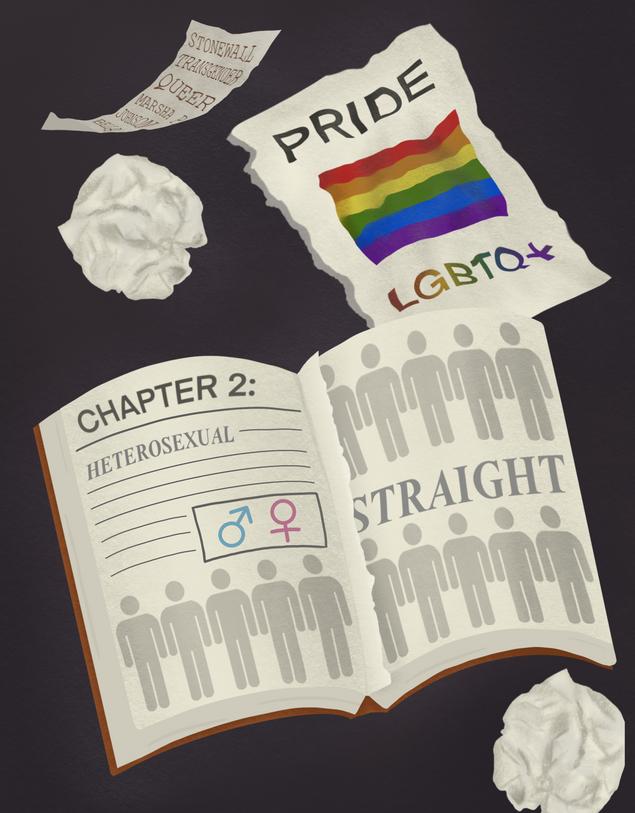
At worst, heteronormativity can escalate, manifesting as harassment or bullying This further increases the negative stigma surrounding LGBTQIA+ and is detrimental to many individuals' well-being.
The amount of heteronormativity in a school environment is partially dictated by the collective schemas (mental framework of beliefs/experiences) and habits of the staff and students within it Individual schemas may be reinforced through involvement in certain activities or religions which celebrate heterosexuality and supposed conventionally gender-distinct behaviours. However, in a school environment, these views are further supported by the similar opinions of surrounding peers and authority figures, a phenomenon attributed to crowd mentality and social identity theory, which accounts for shifts in ideology and behaviour to fulfil a sense of belonging
ttthe issue with he issue with he issue with hheteronormativity heteronormativity eteronormativity in education in education in education. ..
Additionally, the effects of such phenomena are further amplified in students, who are particularly impressionable due to their young age and lack of experience outside the school environment. Schools are critical to young people as they are a space for learning, academically and socially; schools provide a platform for children to navigate their relationships with those around them Because sexuality becomes increasingly central to identity and social relationships during adolescence, schools have an essential role in educating students about sexuality and gender. As mentioned above, schools often serve as a microcosm of the larger society, including the norms and behaviours of acceptable sexuality.
Considering the above, children must be exposed to healthy queer representation to familiarise themselves with the idea that all sexuality and gender is equivalent to heterosexuality and cisgenderedness, giving them more leeway to explore their identities freely without bias or stigma to promote greater acceptance of other outgroups.
Internalised homophobia is when a person consciously or unconsciously accepts homophobic biases and applies these biases to themself In many cases, internalised homophobia starts and is nurtured during the formative years of childhood and adolescence
Because non-heterosexual identities remain stigmatised in school and wider society, people grow up exposed to homophobic sentiments and with little exposure to non-heterosexual representation This leads to an unsupportive environment with widespread heterosexism Many may fear the consequences of being gay or others viewing them as gay as a result They may unconsciously accept homophobic bias or fear that acting in a “nonheterosexual way ” might lead to rejection or discrimination at work, school, or in their family. Given the high rates of violence and harassment affecting people among LGBTQIA+ communities and the lack of acceptance in this heteronormative society, it is understandable that some people may accept homophobic biases and inwardly project these biases to themselves to cope with their hostile environment
Heteronormativity indirectly contributes to the reinforcement of oppressive traditional gender stereotypes and the negative perception of the LGBTQ+ community. Gender roles refer to expectations of how one should act, speak, dress, groom, and conduct ourselves based upon our assigned sex For example, girls and women are generally expected to dress in typically feminine ways and be polite, accommodating, and nurturing Men generally are expected to be strong, aggressive, and bold They have learned behaviours people take on to fit into the dominant cultural norms. Although present-day communities are often more accepting of diverse sexualities and genders than they were ten years ago, there is still a stigma surrounding people who do not conform to gender roles Unless these backwards concepts are abolished, the fight for sexual orientation and gender equality is far from over
There is no accurate representation to teach and inform people about the many types of sexual orientations and gender identities. The lack of representation of diverse sexualities and gender identities leads to heteronormativity being a societal default As a result, heteronormativity is passed on to the following generations through teaching and mimicry.
Combined, this has culminated in the equally oppressive and misinformative conflation of and association of queerness with non-genderconventional behaviour in a purely negative context (for example, the assumption that all masculinepresenting girls are lesbians and are strange or abnormal)
People are more active than ever in politics, yet some are drifting from classical liberalist to progressive and pseudo-fascist positions. This article will explore the dangers of such a drift and ways to avoid it.
Compared to the late 20th century, political violence in contemporary society is relatively rare. This phenomenon was especially prevalent in France during the French revolution and the tumultuous 1930s. However, political violence in the United States and Hong Kong met a resurgence in 2020 and 2019 respectively. I find it necessary to reiterate the importance of moderation and avoiding radical, undemocratic thought.
Disclaimer: This article does not stand for a monolithic belief only in moderate politics, but encourages the tolerance of respective “classical liberal” left and right ideals.
It is said that adolescents nowadays are impulsive, rash, and do not conform to their parent’s strictures. Naturally, many of today’s youth participate in a myriad of political protests This created an opportunity for politicians and parties, often populists, to exploit this The most fervent and radical political organizations are often organized by the youth. For example, the hard-left Antifa and Occupy movements; the hard right’s proud boys recruitment of young people, with the latter recruiting 15-30-year-olds According to the Pew Research Center, 41% of people aged 18-29, considered the largest age demographic, have attended racial equality protests.
Extremism is usually fomented by either political and economic austerity or the emergence of a popular leader. The rise of the Third Reich could be ascribed to both as the late Weimar Republic was incapable of resolving an emaciated Germany whilst the charismatic Hitler was seen as a prime candidate for resolving the issue. The rise of Donald Trump could be attributed to both, while extreme civil rights protests could be attributed to the latter. However, “contemporary extremism” is far less extreme than its 20th-century counterpart and merely refers to the transgression of classical liberalist boundaries.

America experienced robust economic growth during 2016, yet the same could not be said for the rust belt which encompasses much of its midwest As with all populist politicians, Trump provided a scapegoat for America’s misfortunes– China and western Europe Furthermore, the region had been neglected by his opponent Clinton’s campaign. He also demonstrated charisma, winning the admiration of voters. Following the imposition of tariffs, the US’s trade deficit with China actually widened, coupled with souring relations with Western European allies and the severe alienation of China, which caused unnecessary world tension According to the tax foundation, nearly 180,000 full-time-equivalent jobs were lost due to the tariffs. It is also notable that Trump’s anti-trade stance does not accurately reflect the views of the Republicans, as most of them are pro-trade. After his election loss in 2020, he was accused of inciting the storming of the Capitol, an act that invited much condemnation from Democrats and Republicans alike Trump’s disapproval rating jumped to a record 58%, culminating in the then-VP Pence certifying his defeat to Joe Biden.
The BLM campaign gained support from many and the tragic death of George Floyd ignited mass protests in different cities Much of the protestor’s claims are reasonable and fair, as a myriad of evidence suggests that Black people still face discrimination However, an extreme faction in the movement demands yet more Their demands include the defunding of the police, affirmative action, and racial consciousness and are accused of manipulating statistics This directly contradicts what the civil-right paragon Martin Luther King once said, “I have a dream that my four little children will one day live in a nation where they will not be judged by the color of their skin but by the content of their character.” Affirmative action is race-conscious and judges a person by the color of their skin, not character The “buy black” and “buy Latinx” movement thus goes against his racial-blindness doctrine Private businesses also succumb to politically correct pressure groups, with NASDAQ asking relevant listed companies to provide reasons for the lack of diversity on their board of directors. Moreover, most Americans believe racial and ethnic backgrounds should not be a factor in college admissions, with 62% of blacks and 63% of Democrats agreeing
The American left, progressives included, call themselves “liberals” Ironically, modern progressives espouse ideas that are considered illiberal. Despite believing, like classic liberals, that people should be able to flourish regardless of sexuality or race, the left’s method to implement policies is detached from liberal principles Classical liberals believe in the free market, a laissezfaire approach, and allowing competition to initiate change Progressives, however, repudiate these principles, believing that such an approach will not engender change. Instead, they propose direct action (wealth tax, green new deal, affirmative action)

Classical liberals believe that the issues of economic growth and welfare can be settled by elections, yet progressives believe such elections are subject to tampering. Unlike progressives in the 20th century who championed civil rights, the illiberal left believes in reverse racism/sexism: that equality should be enforced by disenfranchising and condemning the privileged for the privations of a minority group The assertion that the privileged cause hardship in society is simply erroneous and merely indicates sentiments of jealousy. This does not resolve racism, but rather, reduces racial color blindness, pressurizes political correctness, and threatens the right to free speech
The previous US president has also been accused of violating classical liberal principles by denying election results. During his campaign, he remained hostile toward immigration by spreading false rumors of legal and illegal immigrants being criminals, “rapists”, and “stealing American jobs” His views corrupted the values of classical liberalism and some say even the Republican Party. It could be said that Trump utilized techniques mentioned in French author Gustave Le Bon’s The Crowd, including acquired and personal prestige. The former is defined as prestige derived from a person’s title, wealth, and power, whilst the latter, often accompanied by acquired prestige, denotes leadership, persona and charisma
Other traits of crowd leaders are that they fail to acknowledge their failures and refuse to recognize challenges to their authority, both of which are demonstrated by Trump’s leadership Trump is a billionaire and a celebrity businessman and has arguably acquired his presidential title through charisma and speeches Following his loss in 2020, Trump also has been accused of inciting the Capitol stormings and disrupting stability
Whilst getting involved in politics is a good thing since it widens your perspective; it would be foolish to take an extreme political stance and even less wise to be excessively impassioned with a particular ideology. To avoid the propagation of ideologies like extremism and populism, education is of paramount importance Voters must differentiate the beliefs of populist leaders and their respective political parties, as a party’s stance may not properly reflect its candidates’ stance. Be moderate and tolerant - even to parochialism. Also, it would be wise to ensure one’s intake of news is bipartisan, as media coverage of extremists often receives more attention and is more profitable for media outlets. Pay attention to less biased news sources, such as AP, Reuters, and The Economist, and last but not least, remember to espouse ideologies sensibly and moderately, as the saying goes “violent love has violent ends”
Due to the COVID-19 pandemic and rising global tensions, there has been a rise in xenophobic social attitudes which often bend on a nationalistic angle. The will of the people is often what leads to the particular stances of politicians and their policies, so it is important to look at nations that have shown or expressed interest in closed-minded policies to see what may cause it Hence, this essay will look at the United States, Australia and China, as these nations have shown particular interest in policies that exclude certain groups like immigrants from regular society.
Firstly, we shall look at the United States. The US since the beginning of the Cold War has upheld values
of US exceptionalism, and proclaimed itself a great and guiding beacon for liberty and democracy. Exceptionalism as an ideal is an extremely nationalistic and self-centred idea, as in basic terms, it dismisses the achievements of other countries and generally upholds the reputation of their own nation as ‘the best’ Americans have glorified veterans and the wars they fought in as righteous and a noble cause, including the wars in Vietnam, Iraq and Afghanistan This extreme exceptionalism has been shown recently by outcries by Republicans to make the history curriculum across states more friendly and amiable towards the United States. It is important to note that this is not
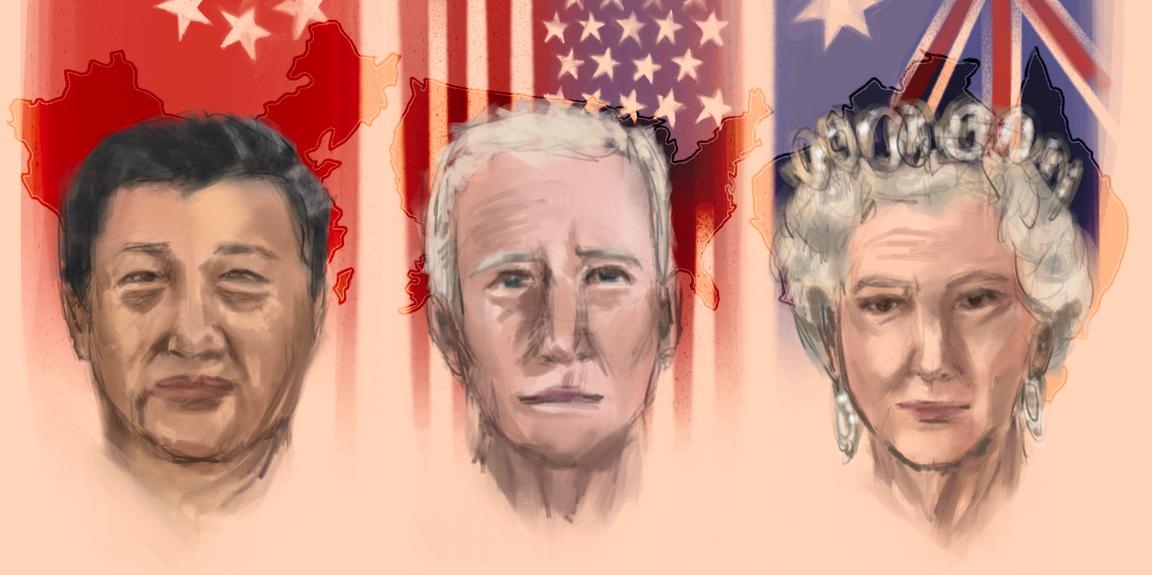
representative of many American attitudes, but the fact that it is represented by a party to an extreme degree, to the point of cutting out parts of history that may not reflect well to the US is particularly concerning
Australia has also shown a lot of closed-minded social values to outsiders The government has also, since 2014, maintained an anti-refugee policy of ‘Operation Sovereign Borders’, which relies upon the mistreatment and abuse of refugees in offshore detention centres as a deterrent to future immigration. Out of the 1,443 people in detention, nearly half of them have been in detention for greater than 730 days. The policy is, however, popular with voters,
due to a shared belief that Australia is the country, and that only the best should enter and work there. Politics in Australia has also taken on an American characteristic, like how ANZAC Day has become a day to be jingoistic rather than honouring soldiers that fought in Australia Some politicians are calling for a reformation of the curriculum to get rid of mentioning the terrible treatment of indigenous Australians to hold Australia in a greater light
Finally, we shall look at a more obvious example of isolationist and self-centered policies: China In comparison to Australia and the United States, China has an authoritarian government, who has very good reason to promote
nationalism Nationalism provides a convenient route to demonise enemies, so that the Chinese government can call them out, and then say to Chinese citizens that they will be the defenders of Chinese interests and tackle the enemies head on. This creates a hostile environment towards foreigners, especially within the East Asian region Chinese government officials have been aggressive against the Korean people, and claimed that their national dish, Kimchi, is actually a Chinese invention. Japanese people have been the subject of discrimination due to the past actions of the World War Two Meiji Regime. Foreigners have started to leave China and Hong Kong due to the aggressive actions of the Chinese government to
stoke anti-foreigner sentiment 90,000 people left Hong Kong just between July 2020 and July 2021, which decreased the Hong Kong population by 1 2% This has been most recently present during the COVID-19 pandemic, where a comic was spread around WeChat that depicted a black person, while in a trashcan surrounded by officials in hazmat suits, saying in Chinese “I was invited here. Yet you can't even satisfy these little requests " , referring to social distancing restrictions The Chinese government gains a greater advantage in inciting hate towards foreigners, as it is a nationalistic pursuit that the government can capitalise on with harsh policy.
illustration by Shawn ChanThe fact that countries are creating harsh sentiments against foreigners and other minorities due to them somehow tarnishing the nation’s image is extremely worrying. All it will do is fuel violence within and on an international scale as nations attempt to protect those discriminated against. Closed-minded policies subjugate those who wish to create a better life for themselves to hostile environments that prevent them from living normal and fulfilling life. It is time for nations to stop acting out of selfinterest, and to start caring for humanity at large.
WhatisDEI?
Diversityreferstothepresenceof differences

within a given setting. Equity is the practice of ensuring that processes provide equal outcomes for every individual, and inclusion is the practice of ensuring that people feel a sense of belonging in the workplace. Together, they bring individuals equal opportunities and a sense of belonging to their environment.SchoolsarecrucialinpromotingDEIin society In the following, we will discuss the topic of reducing sexism and racial discrimination in schools as well as creating an environment that is welcome forneurodivergentindividualsforDEIdevelopment.
Sexism refers to prejudice or discrimination based on one sex or gender It mainly affects women or girls in several aspects,includingmisogynisticattitudestowardthem
Unfortunately, it is clear that there is a lack of awareness regarding the topic of sexism in schools all over Hong Kong. Sadly, such unwanted problems are becoming more common with such occurrences having been reported in HKschoolsinrecentyears
On another note, dress codes in many schools subtly promote sexism in the school environment. Although many schools have their own uniform, on particular days where casual wear is allowed, there is more stringent control on dress codes. Girls are often told to cover their shoulders and legs when present on school premises, limiting their choices on what they can wear in casual day events Lots of girls' schools in Hong Kong hold regular dress code inspections Anyone who fails to meet the schools’ requirements is either obliged to ‘re-hem’ their skirtsorotherwisetheywouldneedtobuynewuniforms.
Asuggestionthatcouldpotentiallybeintroducedinschoolsto bring about DEI in terms of eradicating sexism is to hold lessons with students on the topic so they could fully understand why it is vital to stop sexism and why certain behaviourshouldnotbeconsideredsociallyunacceptable.
Iamstronglypassionateaboutthistopicastheuniformsgirls wear should not be prioritised over more important issues suchastheiracademicperformance Sexisminschoolsshould notbewhatgirlshavetofaceandmostcertainlyshouldnotbe normalised
Racial discrimination is discrimination against any individual basedontheirskincolour,raceorethnicorigin.
Ethnic minority students face discrimination through the school admissions system in Hong Kong When interviewed for the research project by CCPL, Fermi Wong, director of Unison Hong Kong, claimed that in her experience, no ethnic minority students had been assigned places to local mainstreamChineseschoolsbythecentralallocationsystem, despiteitsobjectiveofassigningstudentsrandomlytoschools according to the proximity between the school and the applicant
Instead of allocating ethnic minority students into nearby localschools,studentswillbeallocatedtoschoolstraditionally accepting ethnic minority pupils, except for the few who did not indicate whether or not they spoke Chinese on the applicationform.Furthermore,ethnicminoritystudentsface
discrimination when entering their desired local schools due to racialandlanguagebarriers
Ethnic minority students also lack channels to connect with students of other races at school. In the research project conducted by CCPL, Benyameen, an interviewee, also mentioned that few opportunities existed for ethnic minority students to interact with Chinesestudents.Thisimpliesthatethnicminoritystudentsmaybe isolated from other races at school, as the lack of opportunities for communication diminishes understanding between different races Subsequently, ethnic minorities may be discriminated against or ostracised at school and may face difficulties in blending into the schoolcommunity.
Thepoorteachingqualityfornon-ChineseSpeaking(NCS)students makes it hard for them to integrate into the mainstream Chinese curriculum. The lack of teaching materials and adequate teacher training makes it hard for teachers to adapt to adjustments in the Chinesecurriculum Theteachermaylackclearideasandexperience on how to teach NCS whilst the quality of teaching remains questionable. This makes NCS ineffective in maximising the quality of education for ethnic minorities, subsequently worsening the gap in educational opportunities between ethnic minorities and other races.
More financial resources and subsidies for providing training to teachers and communication opportunities are needed to be allocated, so as to minimize the discrimination against ethnic minoritiesatschool.
“Neurodivergence” refers to people whose minds function differently from the majority of the population (“neurotypicals”). Usually, this refers to people with autism or ADHD, but there are other types of neurodivergent people as well As neurodivergent peopleareintheminority,theirneedsareoftenoverlooked Assuch, neurodivergentpeoplefacemanychallengesatschool
Since people with autism are especially sensitive to sensory stimulation, the bright lights, heaters, or other facilities in classroomsmaybeuncomfortableforthem.Inaddition,issueswith executive functioning also impact their ability to complete tasks withinthetimeaneurotypicalpersonwould,thusthealreadyheavy workloadcaneasilybecomeoverwhelming Wheneducatorslackan
understandingofwhatneurodivergenceentails,they may berate or humiliate the students, leading to a lackofmotivationtolearn
Imyselfstronglyresonatewiththeexperiencesthat neurodivergent people may face. For example, my lack of attentiveness during class has on several occasions caused me to miss important assignments or due dates, and my inability to concentrate on my homework also means it can take several hours for me to complete a relatively simple task Accusations of “laziness” or “lack of effort” have hardly alleviatedthisproblem.
However, online learning may be prompting educators to rethink their approach to educating neurodivergentpeople Educatorshavenotedthatthe familiar spaces in which the students now learned helped students with autism feel more comfortable speaking up in class, and most neurodivergent students performed better when doing remote learning.
InMacau,althoughsomeschoolshaveprogrammes with special schedules and a reduced workload to accommodate neurodivergent people, most schools haveyettocatchontotheneedforsuchpolicies

When school returns to normal, perhaps educators can consider reducing the sensory stimuli in classrooms by removing glaring lights or reducing loud noises, being more considerate towards students who appear to be zoning out in class, and havingmoreflexibledeadlines
With neurodivergent activism becoming more mainstream,perhapstheissuesintheschoolsystem affecting neurodivergent people disproportionately shouldbeamongthefirsttobeaddressed.
In conclusion, it is necessary to introduce DEI in schools because diversity is an extremely significant moralprincipleinthe21stcentury;itishowcountless different groups of people and cultures come togetherasone.
Introducing DEI in schools is the first step in raising awareness on issues that are less well-known in our currentgeneration Moreimportantly,bymakingour current generation conscious of these topics, this effect could then be passed on to different generations, making the world a more diverse place forall.
Why is culture important?
Many people have differing opinions on culture One is “It's a grounding/tribalist coping mechanism to fight off the inner void, or is “inseparable from us The moment we start sharing ideas and world views, culture is born
So what is wrong with it?
Culture has helped us come together to benefit as a society, so you can benefit the most if you believe it But I firmly believe that our progression stagnates from the culture passed down from generations/culture created from the goals of an environment that believes it is needed Humans, like their nature, are selfish
So let’s put it in perspective There are usually two ways of looking at culture: the historical and the environmental For example, culture based on history and heritage may be typical of Chinese culture and tradition Drinking tea, having family gatherings, having a strong distaste for those who aren’t Chinese, and taking off your shoes when you return home In the environmental sense,
this could be your working area It may be the culture to make fun of the new employees or suck up to those who manage your roles
This is what I mean by “toxic culture” The idea is that there are “rules” and “customs” that aren’t composed and written down but fabricated from our subconscious and our human emotions Our mortal fear of not having a place in this world causes us to do, simply put, unkind things
This topic is challenging as it questions the validity of your beliefs There are many instances where religion is used as an argument for obstructing the law Then again, nobody unanimously agrees with the law either However, the norms of general international law are argued to be hierarchically superior, named “Jus Cogens” Terrorist groups like ISIS are a large-scale example of using their beliefs to go against Jus Cogens
There are many other ways that culture has allowed obstruction of Jus Cogens
For example, nearly a decade ago, the Fundamentalist Mormon church along the Utah/Arizona border called the “Fundamentalist Church of the Latter Day Saints” was present Here they practised plural marriage, “polygamy”, and even worse, the church had the power to transfer wives and children from one man to another against the family’s will if they deemed appropriate Many of these times, this was without their consent
Eventually, a major government operation involved dismantling the church's hierarchy, arresting the leaders, and removing the kids from their potentially abusive parents It was chaos, but it was a bold move that established a limit on how far religion could go and what would happen if that threshold was reached
How can we determine when culture/religion reaches the limit? There is no direct answer other than using our minds to decide Our culture could influence what we believe to be right or wrong So what can you do?

This topic is challenging as it questions the validity of your beliefs. There are many instances where religion is used as an argument for obstructing the law Then again, nobody truly unanimously agrees with the law either However, the norms of general international law are argued to be hierarchically superior, which is named “Jus Cogens” Terrorist groups like ISIS are a large-scale example of using their beliefs to go against Jus Cogens or “compelling law”
There are many other ways that culture has allowed obstruction of Jus Cogens For example, nearly a decade ago, the Fundamentalist Mormon church along the Utah/Arizona border called the “Fundamentalist Church of the Latter Day Saints” was present Here they practised plural marriage, “polygamy”, and even worse, the church had the power to transfer wives and children from one man to another against the family’s will if they deemed appropriate Many of these times, this was without their consent
Eventually, a major government operation involved dismantling the church's hierarchy, arresting the leaders, and removing the kids from their potentially abusive parents It was chaos, but it was a bold move that established a limit on how far religion could go and what would happen if that threshold was reached
How can we determine when culture/religion reaches the limit? There is no direct answer other than using our minds to decide Our culture could influence what we believe to be right or wrong So what can you do?
It’s not about the opinions I disagree with that make me so frustrated; it is how the discussion is handled I am not exaggerating when I say more than 50% of what people are talking about are not their actual opinions The cause of this is due to the rise of ironic, sarcastic and satirical humour all over the internet Twitter has to be the worst thing my soul has come across, yet I can’t stop scrolling to see what ridiculous point someone might make next It gives people the feeling of superiority when they talk about something someone else simply doesn’t comprehend
What’s annoying is that there is another layer of “trolling” that you don’t know if the person just enjoys provoking communities or if they genuinely disagree I have seen so many conversations where somebody questions the validity and status of whatever X person has said What results in the community agreeing that they are entirely wrong, and instead of talking about why they believe otherwise, it is just back and forth insulting?
Barely anyone on Twitter seeks to find information, new perspectives, or understand other people This culture is heavily encouraged by how hidden we are on the internet Hidden behind a screen, we can only show the emotions we want to show and portray the person we want to portray It allows us to maximise how much control we have over encounters and minimise the need to acknowledge the other’s point of view People may be tweeting for “bait” or promoting their “opinion” as the only valid one by prefacing it with “I don’t understand how “people with opposing opinion” believe “opposing opinion” This phenomenon is present everywhere- and it’s an attitude we need to change
Culture is many ideas passed down from generations. Beliefs are often considered sacred The university of texas states that an echo chamber (more specifically, a social media echo chamber) is “when one experiences a biased, tailored media experience that eliminates opposing viewpoints and differing voices”
So, when you have an environment built on the same beliefs that do not encourage change, you cannot expand upon your views Culture becomes that “tailored experience” that “ opposes viewpoints” and “differing voices ” Filter bubbles and echo chambers refer primarily to social media as it is a constant feed of information for the user to collect However, they can still exist in real life It is human nature to be friends with those that agree with you and enjoy talking to those that share similar beliefs We enjoy making our bubbles because it is comfortable We want to feel stronger, unified as a group, and more comfortable as a people This is a microcosm of group ideals and beliefs
Walter Quattrociocchi, PhD, associate professor in computer science, partook in a study on Echo chambers; he focused on the segregation of information on different platforms Still, one of his major points was that “fake news travels faster” Although I agree with his point, I believe that “simple news travels faster” relates more to the topic of unchanging, shared beliefs
Arno Michaelis, a former Neo-Nazi, lived in an environment where “white power skinheads” and “hate and violence” were the norm He latched onto the comfortable beliefs and didn’t question his morals It took the compassion of those around him for him to change, but he still is filled with the regret of defining himself as a part of that “racist” and “hateful” culture
Arno Michaelis was only taking the information that made sense to him The hate that he used was the vocabulary he spoke At the base level, what we can understand is easy to latch onto as our core beliefs We need to embrace complexity and fight simplicity

"Culture in the aspects of art, music, and styles is beautiful; it is the history of our creativity that our conscious minds can achieve. But culture can trap us We can feel safe in what we are used to, but we should always try to be aware of what we “should” believe as members of that culture
We should indulge in other cultures, learn about the valuable parts, attempt to understand different beliefs and think for ourselves: “Is what I am saying wrong?” Through this change in mindset, we can become a more understanding society I think that’d help humanity a bit."
“They’ll be here in a couple of minutes,” I whispered under my unaired and insipid breath, peering at the queue of impatient teenagers relentlessly yelling at each other all of them hushed by someone that they referred to as ‘Sir’ Clocks have become my best friends over the five months that I’ve been here; beautiful clocks with intricate embellishments, not the simple ones those are distressing. Our relationship is unilateral, since it is only I who stare at them the entire day, every second, listening to their ticking as dusk turns to dawn and dawn to dusk Each day, my fascination with them intensifies, and why wouldn’t that be? Amongst all us static objects, they were the only kinetic things; but before I knew it, their transiency enraged me Their dynamism made my marbled, white body green with envy Suddenly, they became my arch-enemies, the brevity of each second passed by, seemed to mock me, my immobility, my “permanence” Now, their uniqueness doesn’t captivate me, instead, it ridicules me and lingers on every wall as a constant reminder of my imprisonment within these four veils.
The minute hand moved to 9:05. When I was first brought out here, encased in a glass cage, I adored my routine I watched the sun gradually lift itself at twilight, as hues of red filled the sky and the vista was imbued with animated entities. I spent the rest of the day decrying humanity as they decried me. Eternal ticking: it made me feel as though I was ensnared in the inevitable temporal labyrinth, every single day, just the same. As this thought invaded my head, an enormous group frantically barged in, disrupting the stagnant air
I surprisingly caught the eye of two people, who came and stood near me, which more or less dismantled the thought of my insignificance as a work of art “What a stunning statue! She looks lovely, doesn’t she?” The blonde one shrieked “No, how can you say that, look at her sinister hooked nose and long face She is grotesque to look at,” grumbled the brunette as they both strode past
Hostility from my critics is something that has stopped affecting me, but it really ingrains the idea of disappearance in me. Unheard tales about people's lives, unfinished stories, this is my life. It may sound astonishing, how much more I’ve learnt about humans than they’ve learnt about me in the museum I have found myself sympathizing with their tales, their lives; maybe that is what deepened the creases of my palm, tanned my complexion, cracked the marble underneath my feet, or perhaps the intoxicated worker tripping over my glass box was just a coincidence.
I found my frigid physique not shattered as it touched the firm ground but instead saw it taking a form which I least anticipated: I looked like a human, hell even thought like one, but one thing that distinguished me from them was that I wasn’t trapped in the phantasmagoria, I was free, finally. Yes, I hadn’t seen much but I had heard enough My unutilized limbs dragged me forward into the scintillating realm of the moon For the first time ever I felt freedom, and it filled my “lungs” with oxygen and my “brain” with dopamine I never knew about the existence of the word ‘euphoria’ before, some even say it doesn’t exist, but the moment this magnetic energy made me look up at the night sky, everything stopped I stood there, a trivial five-foot-six statue beneath the sky, stunned. What was it that left me with so many inexplicable emotions? What was it that calmed my tumultuous thoughts?
It was possibly this euphoria that made me ride that bicycle, as my tangled hair danced with the soft breeze, whilst every part of me hollered. The nightly chirping of the birds, the essence of ecstasy contaminating the atmosphere, all when I lightened up and swung with the leaves I met myself I was always there, yet I wasn’t I was hidden from myself. Letting go of the handlebar, the vehicle drifted into an almost cave-like setting, lined with orange trees and hopes, where I went to be hidden for all time, hidden from the world but not myself, concealed from the maladies of this society.
8:58, 8:59, 9:00. At last, I was truly alive...
In Israel, Jerusalem Day is celebrated annually on the day the city was united following the 1967 Six-Day War. Part of this celebration is the Dance of Flags, in which a parade of Jews waves the Israeli flag whilst marching through the city The event had sparked controversy since its conception as it partly occurs in the Muslim Quarter of the city. The 2022 iteration of the event, however, took things to a whole new level; this time around, a group of young Orthodox Jews chanted “Death to Arabs” along the way.
This happened under the broader context of greater antagonism between Israeli Jews and Arabs. This is shown not only through the increased armed conflict between the Israeli army and Hamas, a Palestinian militant group but also in a higher frequency of clashes among civilians These include the shooting of Palestinian reporter Shireen Abu Akleh during an Israeli raid on a Palestinian refugee camp, followed by her funeral where Israeli police were seen beating Palestinian civilians, and violence between Israeli and Palestinian civilians after Jewish visitors allegedly violated agreements by praying in the Al Aqsa Mosque (a holy site for both ethnic groups)
The roots of the tension between Israel and Palestine can be traced back to the 20th century, when conflicting promises of nationbuilding from Britain pitted the two groups against each other, competing for control over a piece of land that they had sworn to obtain for millennia. Since then, they have engaged in numerous armed clashes in the Levant, including the 1948 Civil War and multiple hostilities in the Gaza Strip. Over the years, scholars have identified the problem as a racial grievance and territorial dispute For instance, Zionism places emphasis on the political identity of the Jewish people, citing the Jewish diaspora the spread of Jewish peoples across the globe, starting from the Assyrian invasion of Israel in the 8th century BC as their primary motivation for restoring the ancient state.
More recently, however, there have been new dimensions to Jewish antipathy towards the Palestinians. A recent poll conducted by the Hebrew University of Jerusalem showed that the religiosity of Israeli Jewish youth was associated with hatred of the Arab community and reduced support for Israeli Arab voting rights This was especially the case among the ultra-Orthodox community, where 66% of interviewees from this group expressed hatred towards the Arabs. In contrast, secular interviewees expressed equal levels of hatred towards the ultra-Orthodox and Arabs, both at roughly 23%. The presence of Jewish agitators at the Al Aqsa Mosque shows that radicalised Jews are not hesitant to use religious identity as a means of provocation.
When considering that the Jewish population is becoming increasingly religious, one can anticipate that tension between the Jews and Arabs in Israel will continue to escalate. Arguably, religion has always been a key part of the Jewish identity. This is evidenced by the fact that those without Jewish ancestry, but who practice Judaism, are readily accepted into the Jewish community Moreover, the Jewish origin story, where God makes promises to Abraham about nation-building, has strong religious undertones. Finally, the Torah - a religious texthas been adopted as the official historical account of the race. Though the composition of the state of Israel was not quite religious to begin with (over 80% of the population was secular in 1948), Jews have become increasingly religious over the years. Today, only approximately 40% of Jews see themselves as secular. Observers have noted that the electoral success of Benjamin Netanyahu and his party Likud has contributed to an increasingly right-leaning Jewish youth population, partly thanks to a radicalisation of Judaism in Israel One may look to the Old Testament Bible, which proclaims the concepts of Jews as the chosen people, the superiority of Jews over “gentiles” and holy promises of territorial ownership, for clues as to why religious Jews express their hatred towards a seemingly inferior race for stealing property that they are supposedly entitled to
As a result, it is not hard to envision a future in which certain Jews push for further repression of the Arab community in Israel. Advocacy for the stripping of basic human rights, including political rights, for a minority race is a classic case of the provision of democratic proceedings upon unequal grounds, and is the first step towards what is commonly known as the “tyranny of the majority” or “mob rule”. Observers have even noted that more radical Jews are not afraid to call their state an “apartheid” regime, seeing no shame in such a status. What makes Israel’s situation potentially more dangerous than historical examples of “apartheid” is the status of the enforcer as a majority social group. While the apartheid policies of past apartheid regimes, for example in South Africa, sought to limit the power of the majority and prevent it from using its size to overthrow the authorities, any apartheid structure that Israel might build in the future would institutionalise the marginalisation of a minority group which already sees itself in a weak social position, thus exacerbating its plight.
Under this context, it is worth questioning the effectiveness of the application of democratic principles in Israel. It should be noted that democracy is not just about holding fair and free elections; without an insistence to strive for the greatest possible level of equality for all peoples in all walks of life, the existence of democratic institutions is meaningless and is ineffective in bringing about the empowerment of weak social groups and justice, among other elements that the international community finds to be desirable
Analysis of the Basic Laws of Israel (Israel’s de facto constitutional documents) shows how the country is unable to implement this In particular, the Nation-State Bill of 2018 clearly states that Israel is a nation-state of the Jewish people. It adds that “the right to exercise national self-determination in the State of Israel is unique to the Jewish people” and mandates the regulation of the use of Arabic by state institutions. By incorporating the idea of Jewish superiority over other ethnic groups, particularly the Arabs, in the legal foundation of the state, Israel’s parliament under its then-Prime Minister Netanyahu has shown how beliefs arising from Jewish heritage, in which religion plays a great part, overrides the universal value of equality for all, both on an individual and communal basis.
Another significant observation is that the Palestinians residing in the Israeli-occupied territories of Palestine lack voting rights Those who live in sovereign Israel land, on the other hand, are subject to intimidation from authorities. These include the addition of surveillance cameras in polling stations to “prevent voter fraud”, a move that has been criticised as suppressing the Arab vote. The inability of Palestinians to effectively participate in the electoral process shows how the existence of democratic institutions is meaningless if the authorities that implement them do not uphold democratic ideals - specifically, the ideals of equality and representation are blatantly neglected in the aforementioned case
It is worth noting that religion is far from the only factor leading to the current tensions in the Levant. Yet the region would still benefit greatly from a return of Israel’s socio-political arena to rational and logical grounds rather than religious forces. The secularisation of Israel’s politics, followed by efforts to detach the Jewish faith from ideas of Jewish superiority over the Arab population, would prevent an emotional instrument as strong as religion from clouding the judgement of radical Jews, making the path to reconciliation and peaceful settlement less bumpy It would be a change that not only benefits the Palestinian community, but also the stability and longevity of the state of Israel.
by BERNARD SHIUWhen I think of cannabis, the first word that comes to mind is “ubiquitous”. Anecdotally speaking, consumption is commonplace We all have a friend or two who’s flirted with it. Maybe you yourself are one of those people.
Yet the law has failed to keep up. Cannabis is still classified as a “dangerous drug” locally, grouped alongside the likes of cocaine, heroin, and ketamine. If you’re caught in possession of it, you could face the prospect of a seven-year prison sentence. If you’re found to have sold it, life imprisonment is on the cards.
Further tightening of restrictions looks set to take place. The government is actively considering a ban on products containing CBD: an active ingredient in cannabis that is frequently used to treat ailments ranging from chronic pain to cancer.
This is the wrong way to go. Hong Kong’s cannabis policy is as counterproductive as it is hypocritical, rooted in a groundless moral panic that must be exorcised from the realm of public policy It is imperative that the government modernise its stance, legalising cannabis not just for medical use - but for recreational consumption too.
Critics of legalisation argue that cannabis is too unsafe to legalise. After all, if it poses a grave danger to users, then why put people at risk of harm?
Concerns about negative side effects are justifiable. Cannabis use disorderproblematic consumption of the substance - afflicts roughly 10% of those who partake in it. Studies have previously associated prolonged use of cannabis with an increased risk of cognitive decline, and some research also suggests that the drug can accentuate feelings of depression and anxiety.
There are two things worth noting here. One is that cannabis research is scarce, and as such it’s difficult to draw firm conclusions about many of its supposed long-term effects More important - however - is that in the context of the debate surrounding cannabis legalisation, worries about harm are largely irrelevant. After all, drug experts broadly agree that cannabis is less dangerous than alcohol and tobaccosubstances which are both legal in Hong Kong.
So why legalise? For one, we ought to allow people to use dangerous drugs in situations where harm is being done to them and them only If the consequences of one’s actions don’t extend to society, then there’s no reason why society should hold them back. Only when consumption of dangerous drugs leads one to harm others - such as in the case of drunk driving - should the state consider punitive action.
Paradoxically, it is also arguable that the best way to protect people from drugs’ most harmful effects is to legalise them. In the case of cannabis, not all buds are built equal. Marijuana that contains high amounts of THCthe active ingredient in cannabis that causes “highs” - is more likely to spark addiction and negative side effects than low-potency variants. Moreover, marijuana bans often lead people to seek out synthetic cannabinoids: manmade chemicals whose effects resemble those of cannabis, but which are typically vastly more dangerous. Colloquially known as “spice”, synthetics frequently cause overdoses: something which is essentially impossible when consuming conventional cannabis.
If cannabis is legalised, regulators can eliminate both of these threats. They can shield the public from high-THC strains of cannabis by setting caps on THC levels, as is already the case in the US state of Vermont The legalisation of cannabis is also likely
to depress demand for hazardous alternatives like synthetics, leading to fewer drug-related overdoses and hospitalisations None of this is possible if cannabis production is left to an unregulated black market, especially when profit-seeking producers have a vested interest in supplying addictive variants of marijuana to buyers.
Bans on cannabis are also a massive boon for organised crime syndicates Estimates from 2009 suggest that revenues from the illicit drug trade globally may total over 1 trillion US dollars, and Chinese criminal gangs known as “triads” are frequently implicated in Hong Kong-based marijuana smuggling.
If cannabis were legal, the general public would be able to cash in on its profitability, snatching away market share from triads that currently monopolise supply. In that sense, it would be a redistribution of wealth and opportunity from the few to the many
Examples worldwide vindicate this notion. In the wake of Thailand’s recent cannabis legalisation, entrepreneur Tom Kruesopon suggested that the country’s marijuana industry could generate US$10bn in its first three years. In the Netherlands, sales of cannabis total two billion euros annually In California, sales have crossed US$5bn. Considering its sheer profitability, marijuana legalisation in Hong Kong could unleash a tidal wave of widelyshared wealth creation and innovation In a city whose economy has been left moribund by years of pandemic-
related restrictions, that certainly couldn’t hurt
Despite its many theoretical merits, cannabis legalisation will only succeed if it is implemented effectively. This is more apparent than ever in US states such as California and Colorado, where cannabis has been legalised but black markets still reign supreme Illicit sellers often have established customer bases, making them harder to uproot. Moreover, producers on the legal market must comply with stringent restrictions such as packaging requirements, which black market firms are exempt from. A slimming-down of barriers to entry in the legal market - such as licensing fee reductions - could undermine black markets by simultaneously making legal sellers more competitive and encouraging prominent black market sellers to switch to the legal market.
Moreover, for-profit drug sales often come at the expense of public health, since private cannabis firms have an incentive to sell as much product to as many people as possible. Therefore, the government could consider mandating that all cannabis retailers must be non-profits. A state retailer monopoly - as is the case for alcohol in numerous Nordic countries and Canadian provinces - is another potential alternative to private sale.
When one considers the issue of cannabis legalisation, there are a number of questions worth begging Should trust freethinking individuals to make decisions for themselves, or do we prefer paternalistic state overreach? Should we treat all recreational drugs equally, or impose a shameless double standard? Should we shield the public from cannabis’ worst effects, or leave it vulnerable to an anarchic black market? And should we concentrate wealth and opportunity in the hands of triads, or distribute it to the many?
The argument for legalisation is resounding: it’s time to let cannabis come out from the shadows.
These articles are written in collaboration with Queerlogue, one of the teams at the Action For A Cause (AFAC) campaign hosted by Kids4kids The team aims to foster an understanding of the LGBTQ+ community in Hong Kong, especially among communities with opposing views
Below is a translated transcript of Queerlogue’s interview with Phyllis Wong, the minister-in-charge of Kowloon Union Church, and Grace Bok, the founder of the Covenant of the Rainbow campaign. Joanne from Queerlogue interviewed the two pastors and asked about their opinions on LGBTQ+ rights and same-sex marriage from a Protestant Christian point of view
Hi Phyllis, perhaps you can first introduce yourself, and give us a brief understanding of the dynamics between the LGBTQ+ community and the Church?
I am Phyllis Wong, the minister-in-charge of Kowloon Union Church, a local Protestant Church. Within the Protestant Christian denomination, there are different interpretations and understandings of sexual minorities, so there is not a singular opposing voice, but rather a spectrum of different opinions. Many followers of Christ hold a supportive and positive attitude towards LGBTQ+ topics, based on our beliefs in human dignity and the equality of everyone before God.
You mentioned that there has been more inclusivity towards sexual minorities within the Church in recent years, but regarding topics that are more sensitive like samesex marriage, where does Kowloon Union Church stand?
Same-sex marriage is actually legal in many places. For us Christians, we believe that everyone is capable of loving. If a couple wishes to have a long-lasting relationship of covenant with each other, then their right to love should not be stripped off simply because of their sexual orientation No one can take away their right to receive the blessing of God. So if their marriage is legally recognized, Kowloon Union Church is more than happy to conduct a ceremonial blessing for them
We’re glad to have churches like yours to provide such services for LGBTQ+ couples, but even nowadays there are still not a lot of churches like yours in Hong Kong What motivated you to make this first step and reach out to our queer brothers and sisters?
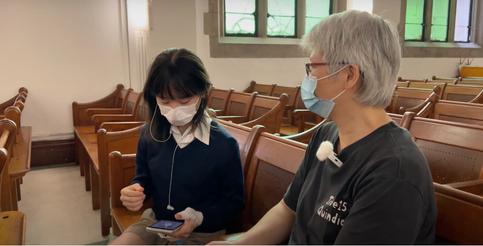
I actually grew up in a traditional, conservative church that held mostly opposing views on same-sex couples and homosexuality. The change really came when I started working as a social worker, which allowed me to know more about marginalized communities and ostracized members of society. This background of mine made me particularly sympathetic towards those who are discriminated against, suppressed, and silenced I then went on to study theology, which was when I started getting in touch with the LGBTQ+ community. For the first time, I realized that a person’s sexual orientation or gender identity has absolutely nothing to do with their faith or piety to God. Society and certain religious cultures treat these sexual minorities unfairly, but that is not the intention of God. God loves everyone equally. It was also greatly saddening when I learned about the internal wounds of some LGBTQ+ friends of mine from being both Christian followers and queer people. I just want to tell them that these two identities are not incompatible You can be a queer Christian because God is love.
Thank you for the interview, Phyllis Grace is also a local Protestant pastor supporting the LGBTQ+ community. Do you mind introducing yourself and your campaign, Grace?
I am Grace, a pastor from One Body in Christ Church. In 2013, I alongside a few other representatives founded the Covenant of the Rainbow campaign, with a mission to advocate and lobby for LGBTQ+ rights in Hong Kong. Our work includes negotiations with the Equal Opportunities Commission, political organizations, and policy-makers, in addition to providing services to queer members of our Church specifically
Understood, so the organization is taking small steps to promote acceptance and inclusivity of LGBTQ+ groups among the Christian community as well?
Yes, it is a long road, especially in Chinese society, given its conservative values. There is the historical burden of the traditional interpretation of the holy book, which disapproves of homosexuality. However, with societal and scientific advancements, it is clear that religion should also keep up with this progress For example, in the past, homosexual people were considered sinful and would be stoned to death, but we no longer do that nowadays. The Bible, a product from more than 3000 years ago, was written in its own historical and cultural context which is different from today’s society. We cannot decontextualize the bible and isolate its doctrines the homophobic, transphobic, and misogynist values from when the bible was written should be taken into account. We shouldn’t blindly follow the religious rules from the past, but rather should rethink and reinterpret them as society changes
That’s right. Finally, what would be some advice that you’d give to an LGBTQ+ person who wishes to follow Christ?
It is challenging for the Church to update its official stances because of the burden of the clergy, though many pastors are indeed quite inclusive in private. As Pope Francis always emphasizes, “Who can judge the sin of our LGBTQ+ brothers and sisters?” We cannot undermine their love and sacrifice to God just because of their sexual orientations Does everyone entering the Church need to be as pure and clean as a saint? No, and Jesus has proven that to us by befriending and helping the bottommost members of society — the taxpayers, the disabled, and the sick. So, to the fellow LGBTQ+ followers: Please do not give up because of the outdated doctrines of the Church; the Church is only an earthly establishment. Remember that God loves everyone equally



“They tell students to wear condoms during sex. But what about LGBTQ+ people? They never talk about us,” a genderfluid local secondary school student told Queerlogue in an interview.
“I only learnt about LGBTQ+ in the past year or two, through the Internet,” the student interviewee - who goes by the pseudonym Cat (she/her)continued, “because the school doesn’t talk or teach about it.”
In a 2019 report published by the Hong Kong Equal Opportunities Commission, LGBT participants expressed that using public education alone as a strategy to eliminate discrimination is inadequate and ineffective Indeed, Cat pointed out how the local education system fails to destigmatize the LGBTQ+ community in Hong Kong

In the interview, Cat recalled an instance where a few male classmates mocked a transgender woman in a video shown in class The classroom fell into a cacophony of laughter and chatter, despite the teacher’s attempt to control the situation Cat believed such a reaction was a result of ignorance: The general public in Hong Kong still holds the views that non-heterosexual relationships are ‘abnormal’, asexual individuals are ‘freaks’, and transgender people simply ‘like cross-dressing which is very disrespectful ’ Nonetheless, Cat was not surprised by the ignorance of both the general public and her classmates, as concepts such as non-heterosexuality and non-binary gender had never been adequately taught at her school
Due to this widespread mislabelling of the LGBTQ+ community in Hong Kong, Cat remained closeted for the duration of her secondary school life Although her classmates were generally quite supportive of her queer identity, she dared not to come out in fear of potential repercussions, given the burden of her Head Prefect position
n another interview with Megan Ho (she/her), who used to go to a local school, she recounted the dismissal of her friend’s queer gender identity by her teacher at school “While some teachers don’t directly condemn LGBTQ+ relationships, their dismissive attitudes in referring to them as ‘just friends,’ or ‘being immature,’ invalidate the students’ gender identities,'' Megan said

The repercussions of the local education system’s failure go beyond damaging the self-esteem of LGBTQ+ students, as the absence of an LGBTQ-inclusive sex education jeopardizes the safety of queer students like Megan Heterosexual sex education is already falling behind in Hong Kong, let alone that for queer relationships ”It’s non-existent,” as Megan put it



Megan particularly highlighted how the homophobia rooted in the sex education of the current local system puts LGBTQ+ students at risk As said at the beginning, a heterosexual-focused sex education that neglects sexual minorities mean that sexual knowledge for them is not taught or learnt “Not only do queer people feel left out, but they also lack the practical knowledge when it comes to sex, putting them in a vulnerable situation,” she said
While it would be naive to say that the international school system in Hong Kong provides a comprehensive scheme of sex education, it is clear that the local education system is nowhere close to taking into consideration its LGBTQ+ students Conducted by The Family Planning Association of Hong Kong (FPAHK), the latest Youth Sexuality Study published in June 2022 underscored the inadequacy of sex education in the local education system Professor Yip, chairman of the research subcommittee, noted that sexual health knowledge among junior secondary students was “undesirably low ”
Another queer student under the pseudonym Skylar (she/they) told Queerlogue about her contrasting experiences as a queer student studying in Hong Kong and the West Growing up in a conservative household and having gone to a local secondary school, Skylar was shocked but delighted to see the open and inclusive attitude towards LGBTQ+ students when she went to Australia for university “All of my schoolmates are unashamed of their identities and sexual orientation, and it is common practice to introduce ourselves with our preferred pronouns,” Skylar said
Despite the positive experience, Skylar reflected on the difference in the general attitude towards LGBTQ+ students “This difference is both baffling and understandable,” she commented While the conservative culture of Asian societies partially explains the difference, the discouraging attitude of local schools that prevents students from being “proud of their identities and showing others how we would define ourselves” should not be tolerated.
Although Skylar had labelled herself as bisexual at the young age of 15, she did not come out publicly due to her conservative parents. “They have threatened to disown me if I claim to have an LGBTQ+ identity,” she confessed. “Ensuring your own safety is always the most important,” said Megan as a piece of advice to her fellow LGBTQ+ students with close-minded parents.
As with other aspects of LGBTQ inclusivity, Hong Kong is progressing bit by bit. However, due to the long-standing taboo toward sex and the conservative approach to sex education, the local education system is falling behind. As the basis of our future society, education bears a crucial role in driving greater acceptance of the LGBTQ+ community and social progression in Hong Kong. The urgent question of ‘how can we make sex education more inclusive?’ must be asked and answered.
Society has historically lagged when it comes to protecting the interests of women, and the law is no exception However, as our more modern ideals have slowly overturned these archaic views, at least in the younger generation, some parts of our law and legal systems have not changed at the same pace. As a guy, I am not the one who should be talking about what the societal standard of gender equality should be; I should leave that to people whose voices have been historically marginalized. But as a law student, I believe I can help by shedding some light on how these issues have affected even the relatively objective and respectable legal system we have here in Hong Kong. So, in this article, I would like to shed light on the Hong Kong's problematic rape law, and hopefully raise awareness among those who are fighting the good fight
However, before we jump into looking at the law on rape in Hong Kong, let me give you a quick overview of what criminal offences consist of. Offences are made up of two parts, the conduct element, called the actus reus, and the mental element, called the mens rea. The actus reus of the crime is what we normally think of as what crime is, i.e. stealing, killing, harming. Those are all forms of criminalized conduct and are the actus reus element of a crime. Mens rea, on the other hand, is the mental element of a crime, the frame of mind that the defendant has to be in when committing the crime for him or her to be held liable for an offence.
This idea comes from Roman law, where it was said that “actus non facit reum nisi mens sit rea”. Translated into simple English it means: the act does not make you guilty unless you also had a guilty mind. So, out of fairness, it wouldn’t be right to hold someone accountable for actions committed with innocent or even good intentions. This means that in our criminal system, along with looking at what physically happened, we also have to look at what was going through the defendant’s mind as he was committing the act.
This idea comes from Roman law, where it was said that “actus non facit reum nisi mens sit rea”. Translated into simple English: the act does not make you guilty unless you also had a guilty mind. So, out of fairness, it wouldn’t be right to hold someone accountable for actions committed with innocent or even good intentions. This means that in our criminal system, along with looking at what physically happened, we also have to look at what was going through the defendant’s mind as he was committing the act.
But determining what the mens rea requirement for a crime isn’t always a straightforward exercise. This is usually done by the legislature and then interpreted by the courts, reflecting the times in which they were drafted and applied This, however, can allow for some unfortunate outcomes, as is the case for rape in Hong Kong, where the current law is:
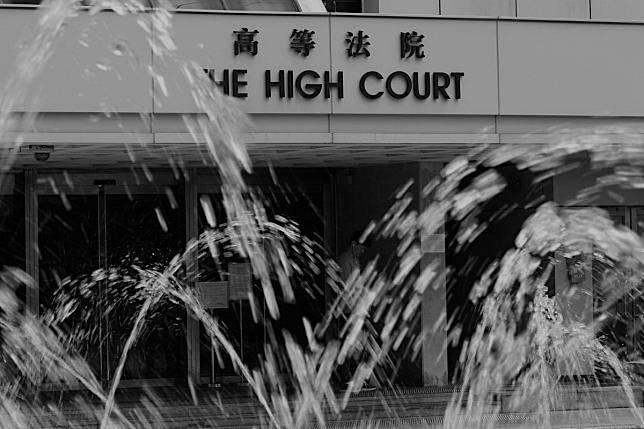
A man commits rape if
(a) he has unlawful sexual intercourse with a woman who at the time of the intercourse does not consent to it; and
(b) at that time he knows that she does not consent to the intercourse or he is reckless as to whether she consents to it.
(Section 118 of Crimes Ordinance, Cap.200)
This is problematic through and through, reflecting a dated patriarchal view of what rape is. The actus reus here is a man having unlawful sexual intercourse with a woman without consent, with sexual intercourse defined as the penetration of the vagina with the penis (Kaitamaki). This is a gender-specific crime, which can only be committed by a man against a woman. Now, you can start to see why this may be problematic. As the Law Reform Commission, a government body tasked with writing reports on how the law should be reformed notes, rape is a strong word in our culture, carrying a very negative stigma about a person violating the sexual autonomy of another.
This is a very strong word that is useful in attaching a strong negative stigma to acts violating the sexual autonomy of others (Consultation Paper on Rape and Sexual Offences).
However, in our current definition of the crime, the prohibited act is very narrow, much narrower than the common everyday use of the word, as it excludes penetration of the mouth and anus, acts that many would consider being equally as violating as vaginal penetration. This definition also does not include homosexual rape or transgender individuals, who cannot commit rape under our current law (which is a very odd place for sexual and gender discrimination to take place if you think about it). The above challenges were all reformed and changed in England and Scotland, yet Hong Kong’s law still reflects the attitude prevalent during a time when rape was about the violation of another man’s property and his right to use his wife as a child-bearing device To move on from this and into our age of inclusivity, the actus reus should be generalised so that it will reflect our understanding of rape today, which most would say, should be defined as the worst form of sexual violation of any person The mens rea of the current law is also reflective of a male view of rape Here, mens rea is focused on the man, focusing on whether he had knowledge that the victim did not consent or was reckless with not knowing The leading authority of this is a case called DPP v Morgan, a case that has been heavily criticised in the UK and repealed by the legislature in its sexual offences legislation reform Morgan states that a defendant in a rape trial need not prove that his belief that he had consent during the act was reasonable Rather, he only needs to prove that his belief was genuine This is highly problematic and has come under intense academic criticism It is in effect an idiot’s charter if you will because a person can theoretically get away with rape if they are so out of touch that they do not realise that a struggling victim was a sign of non-consent This is a patriarchal view of consent, focusing more on the defendant who had committed this terrible act rather than the victim who was violated without consent By doing this, we are protecting the defendant at the cost of a victim’s right to justice
Now, as I have mentioned throughout, both England and Scotland have already reformed their legislation to help reflect our modern times. Hong Kong’s rape law is derived from English law, yet we have not followed their changes, even though the Law Reform Commission, through their reports, have recommended that we should have done so. The proposed reforms include changing the actus reus of the crime to requiring penetration of either the vagina, mouth or anus, therefore making the law clearer and widening its scope to include other acts that most will view as violating as rape. A change to the mens rea from a subjective standard as set out in the case of Morgan, to a mixture of an objective and subjective standard, whereby the standard will be whether or not the defendant held a reasonable belief that he has consent This reasonableness standard raises the bar, affording greater justice to the victim as it allows considerations of their actions, while still being fair to the defendant by giving the truly morally blameless a way out
It should be noted, however, that this isn’t a magical solution to stopping rape Even in the UK where reform has taken place, rape charges are shockingly low, consisting of 1 6% of reported rape cases while convictions have been falling (Barr) So yes, even though changing the law is important as the law reflects our societal values and removing patriarchal assumptions to promote gender equality will benefit all in society, this change won’t be a magical solution to everything Change comes from the ground up, starting with you, the reader, the person sitting next to you and everyone else in society In popular culture, stories about sexual advances are often framed in terms of the baseball analogy, where a man “wins” by batting a home run if he can get a girl into bed This view of sex makes it a win-or-lose situation, where the man loses if he fails in his quest Now, as a reader of this magazine, you’re likely to be taking your first steps into exploring this important part of human nature But, as a message to all male readers, be wary of following the crowd and the baseball analogy: intimacy should be a partnership, like eating a whole pizza It is a two-way street, and by remembering to always consider your partner, you can help start creating a culture where rape might be less common.
 by Callum Fitzhenry
by Callum Fitzhenry
For anyone who hasn’t been updated on the news recently, there was a leak in which the US Supreme Court voted to overturn the 1972 case Roe v Wade, claiming it to be “egregiously wrong from the start” Roe v Wade was a landmark decision by the Supreme Court that protected a woman’s right to have an abortion at her discretion It was a very progressive case that came after the events of the 1960s culture of protest and progressive changes in the United States Considering the importance and influence of religion and tradition in the United States government, it was a massive precedent for changing the lifestyle of US citizens It sent a message to protestors for improved civil liberties that big things were coming
The Equal Rights Amendment also has a vibrant history, returning to its first introduction to Congress in 1923 Almost 100 years later, the Amendment that would protect the rights of all people in the US, regardless of their sex, has still not passed In a world where equality and the fight for protection for those who experience discrimination, it is inconceivable that the country that is supposed to be paving the way for equality and justice has neglected the rights of half its citizens
The Equal Rights Amendment would protect the rights of women in the same way that it would protect the rights of men in the US, including the prohibition of discrimination against women and the right to abortion It did not pass in 1982 due to many different factors, the most significant of which was the difficulty of amending the constitution, followed closely by opposition to the ERA by individuals such as Phyllis Schlafly
(Artwork by Clarinde Sanft)Amending the constitution requires two-thirds of the popular vote in both houses of Congress or a national convention; if an amendment gets past this stage, it is considered to have been proposed However, to be ratified as a proper amendment, three-quarters of the state legislatures (mini legislative branches in each state) need to vote for the amendment This process is exceptionally laborious because if even 13 states disagree on an amendment, it will not pass This means that if the 13 smallest states opposed an amendment (although highly unlikely), less than 4% of the US population could be responsible for an unsuccessful attempt at ratification
In the ERA case, 35 States ratified the Amendment, meaning it needed only 3 more to be ratified At the time, three states did not vote before the deadline of 1982 and have since ratified it However, due to the efforts of certain pressure groups and key individuals such as Phillis Schlafly during the mid1970s, there was a decrease in support for the ERA This conservative backlash caused five of the 35 states to withdraw their support for the ratification
Justices are put forward by the President and appointed by a majority vote by the Senate; therefore, they can easily have biased views These Justices are, therefore, unelected, biased and bestowed with the absolute power of judging whether a case or not is constitutional in their opinion An example of this would be the recently deceased Ruth Bader Ginsburg, appointed by the Democrat President Bill Clinton Ginsburg was known for her liberal and progressive views, passing many significant cases such as Obergefell v Hodges, which protected the right to gay marriage
This means that a past Supreme Court decision can be overruled by a current Supreme Court as there is either a new interpretation of the constitution, a recent amendment to the constitution, or the ideological dynamic of the Court has changed, the latter being the most common The Roe v Wade decision is an example of this
Despite this backlash, 60% of the states in the US still supported the ERA, and if one of the three states who failed to ratify the amendment in time did ratify it, then the amendment still would have had a supermajority of two-thirds. Yet, under the amendment process, this was not considered enough.
This process is highly flawed. There are some convincing reasons for this process being so strenuous (e.g. to prevent an amendment from being passed that radically changes vital aspects of US democracy). However, the disadvantages over 200 years after the constitution's ratification easily outweigh the advantages, as there is no need for the threshold to be so high when trying to make an amendment.
But how are the ERA and the amendment process related to the recent Roe v. Wade decision?
Since the Supreme Court has the sovereign power of interpreting the constitution to deem laws as constitutional or unconstitutional, any decision made by the Justices is virtually impossible to change The only exception to this rule is through amendments Do you see where this is going?
So, the connection between the ERA and the overturning of Roe v Wade is that if the ERA had passed back in 1982, then the Supreme Court would not have been able to overturn the landmark decision to protect abortion rights for women In a recent poll by NPR, 66% of Americans do not support the overturning of this case, and under the current political processes of the US, this is not considered enough to amend the constitution

This case displays the issues with the US amendment system as it has not only prevented a popular amendment that would protect human rights and outlaw discrimination from being ratified but also allowed for an unelected body of politicised judges to make decisions affecting the entire population of America with no realistic way of reversing it.
Despite all of this, many still claim that the constitution is still relevant today and still applicable to the current political climate of the US. To that, I must ask you to consider the millions of women in the future who will be affected by the decisions of today's Supreme Court who have no viable way to protect their human rights.

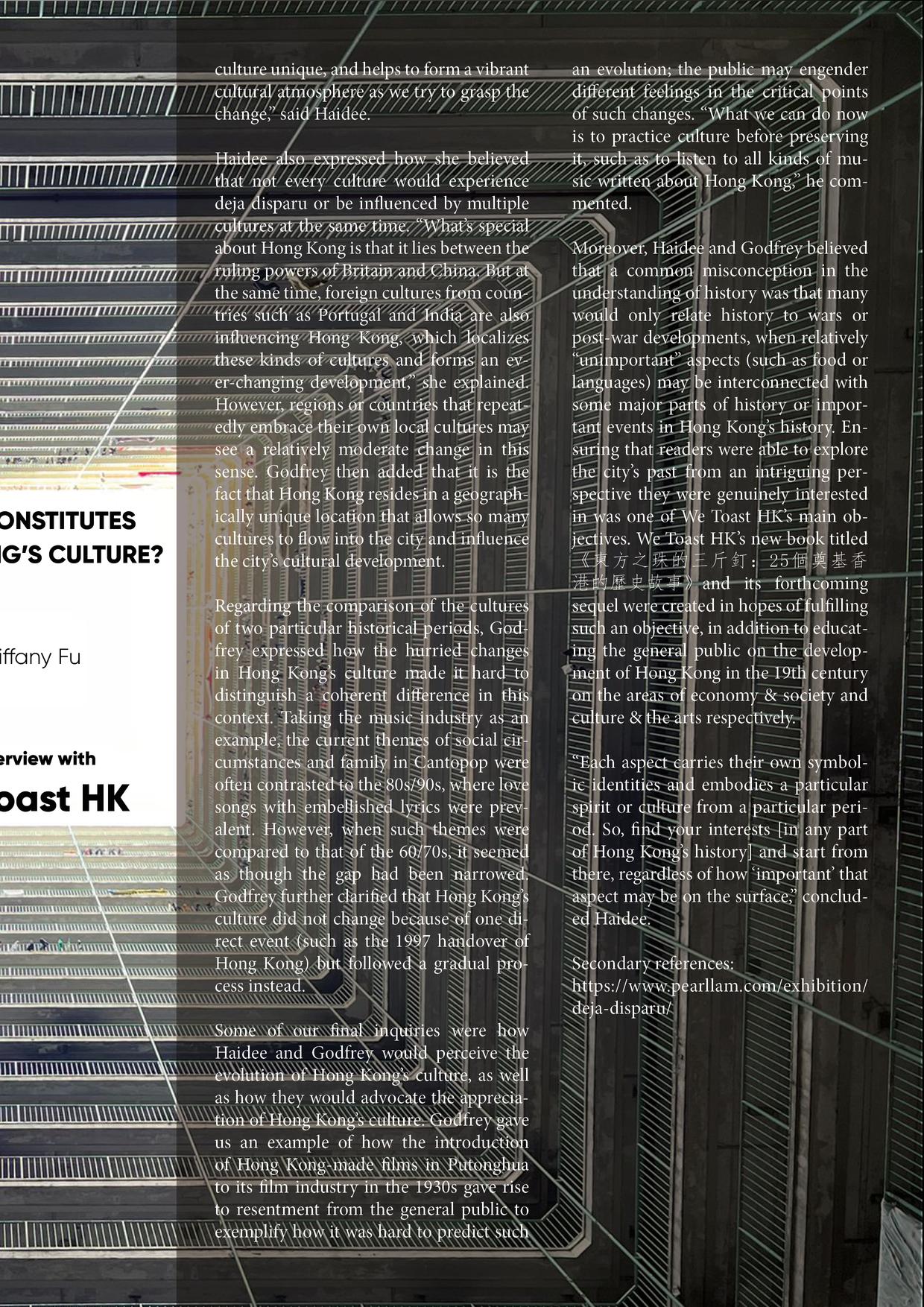




Hello, we are the members of ISSIA’s ISF chapter! From the 3rd to the 6th of May, we hosted a week-long event for the promotion of the fourth and fifth UN SDGs: quality education and gender equality. We collaborated with other fundraising groups at ISF, and through a combined effort, we were able to raise over 23,000 HKD for UNICEF and the Changing Young Lives Foundation. We wanted to share our experiences during that week with everyone and give our thoughts on what running an ISSIA event is like.
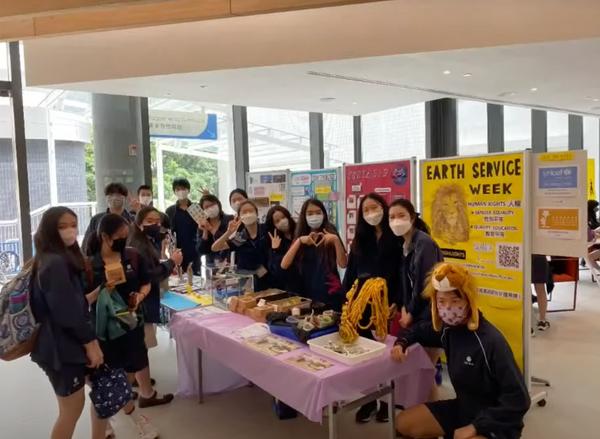
After spending some time reaching out about our idea, we eventually met with the head teachers to schedule a time for ISSIA week to take place. Unfortunately, due to overlapping schedules, we could not find an ideal time. We ultimately decided to run our event jointly with other fundraising groups during the May Human Rights service week to create a greater overall impact.

01/04/22 - Planning events in more detail, meeting with teachers for logistics, setting up social media




We had many ideas for events that could promote our bigger theme of Human Rights, including an art exhibition and competition, a dress casual day, a busking event and more. Some ideas ended up becoming infeasible according to the teachers in charge, and others overlapped with what the other fundraising groups had in mind. Their ideas were well established and fit in well with the logistics, while ours were merely a running concept - and so, we dropped all the ideas listed earlier.
Eventually, we settled on hosting a bake sale and a sticker designing competition for our ISSIA week. We also set up an ISF ISSIA social media account to make students aware of who we are and what we do. We found recipes for popular baked goods such as cinnamon rolls, banana bread, matcha cookies, rice krispies and brownies to cater to our target audience - other students at ISF.
21/04/22 - Showcasing event rundown, confirming charities to fundraise for (UNICEF, Changing Young Lives Foundation)
After planning and figuring out who did what, we showcased our event rundown to the organizers of the service week as well as the UNICEF representatives at ISF. We discussed potential clashes in content, made minor changes accordingly, and confirmed the charities we would be collectively contributing to. Additionally, we were permitted to start formally promoting our events on our social media.
25/04/22 - 29/04/22 - Finalizing event decisions, conducting preparations
We blocked out days and times for our Bake Sale (03/05/22-04/05/22), decorated a bulletin board and recorded promotional videos to be showcased to all students during homeroom. We made small tweaks to fit everything to the schedule.

Soon enough, everything was set in stone. We continued our promotions, prepared the ingredients and packaging for the bake sale, and created forms where students could submit their designs to the sticker designing competition.

As soon as they got home, those in charge of the bake sale began mass-baking. Given the school’s large population of students, they got their friends to assist with the effort as well. Late into the night, they met online to discuss marketing tactics, prices and other last-minute details.



03/05/22






Due to G12 Exam Day, ISSIA week was shortened to four days instead of five. Nevertheless, our schedules that week were especially hectic, especially the bake sale members - they had to sacrifice passing time, recesses and lunches to ensure everything was running smoothly. Fortunately, their efforts were not in vain- the bake sale ended up being wildly successful. We sold out our first batch halfway through the first day - something we couldn’t even fathom would have happened. In the meantime, the sticker design competition was also in full swing- submissions were pouring in as members struggled to keep up with students’ unprecedented investment in the activities.
After ISSIA week, we managed to raise an unexpectedly large amount of money for our cause. There was a little bit of housekeeping needed to make sure all of the money we planned to donate was organised and kept safe, but overall, members got a welldeserved break after four days of hectic activities.


